
Exploring 200+ Psychology Topics to Research: Unlocking the Depths of the Mind

The world of psychology is as vast as the human mind itself. Delving into the intricate workings of the human psyche can be both fascinating. For students, academics, or anyone with a curious mind, choosing the right psychology topics to research is paramount. In this blog, we’ll navigate through the labyrinth of psychology topics, helping you find your way to a captivating and meaningful research endeavor.
How To Select Psychology Topics To Research?
Table of Contents
- Follow Your Interests: Start with what you love. What aspects of human behavior or the mind fascinate you the most? It’s much easier to research something you’re passionate about.
- Consider Relevance: Think about how your chosen topic fits into your academic or career goals. Does it relate to what you’re studying or the job you want? If it does, great!
- Balance the Scope: Don’t pick a topic that’s too broad or too narrow. Find that sweet spot in the middle. You want a topic that’s focused enough to research effectively but not so narrow that there’s no existing information.
- Explore Different Areas: Research the various branches of psychology, like cognitive, social, clinical, developmental, or biological psychology. See which one resonates with you the most.
- Seek Advice: Talk to your professors, mentors, or peers. They can provide guidance and suggestions based on your interests and goals.
200+ Popular Psychology Topics To Research: Category Wise
40+ cognitive psychology topics.
- The role of working memory in problem-solving.
- Cognitive effects of sleep deprivation.
- Neural basis of attention and focus.
- Influence of language on cognitive development.
- Decision-making biases in economic behavior.
- The psychology of learning and memory.
- The impact of stress on cognitive performance.
- Cognitive decline in aging populations.
- Emotion and memory recall.
- False memories and eyewitness testimony.
- Cognitive processes in creativity.
- Cognitive aspects of decision-making in healthcare.
- The psychology of expertise and skill acquisition.
- Cognitive factors in reading comprehension.
- The role of schemas in information processing.
- Cognitive development in infants.
- Cognitive rehabilitation after brain injury.
- Attention-deficit/hyperactivity disorder (ADHD) and executive functions.
- Neural mechanisms of perception and visual attention.
- The psychology of problem-solving in artificial intelligence.
- Cognitive aspects of mathematical reasoning.
- Neural plasticity and cognitive recovery.
- Cognitive load and its impact on learning.
- Memory consolidation during sleep.
- Attentional disorders and their impact on cognitive functioning.
- The influence of music on cognitive processes.
- Cognitive development in bilingual individuals.
- Cognitive aspects of decision-making in criminal behavior.
- Neural correlates of cognitive control.
- The psychology of cognitive biases in politics.
- Cognitive effects of mindfulness meditation.
- The part working memory plays in academic success.
- Cognitive processes in language acquisition.
- Cognitive factors in problem gambling behavior.
- The psychology of cognitive development in children with autism.
- Cognitive aspects of spatial navigation.
- Memory distortions and the courtroom.
- Neural basis of cognitive dissonance.
- Cognitive aspects of social perception.
- Cognitive rehabilitation in Alzheimer’s disease.
40+ Social Psychology Research Topics
- The impact of social media on self-esteem.
- Groupthink and decision-making.
- Stereotype threat in academic settings.
- Bystander effect in emergencies.
- Cross-cultural perspectives on conformity.
- Online dating and self-presentation.
- The psychology of social influence.
- The role of empathy in prosocial behavior.
- Social identity and intergroup relations.
- Aggression and video game exposure.
- Prejudice and discrimination in modern society.
- The influence of social norms on behavior.
- Attitudes and attitude change.
- Social support and mental health.
- Obedience to authority figures.
- Social comparison and self-concept.
- The psychology of attraction and relationships.
- The bystander intervention model.
- Body image and social media.
- Political polarization and social psychology.
- The psychology of fake news and misinformation.
- Emotional contagion and social interactions.
- Stereotyping in the workplace.
- Consequences of cyberbullying.
- The impact of group dynamics on creativity.
- Gender roles and socialization.
- The role of humor in social interactions.
- Social factors in decision-making and risk-taking.
- Altruism and volunteerism.
- The psychology of leadership and authority.
- Social exclusion and its effects on individuals.
- The relationship between religion and prosocial behavior.
- Social influence in marketing and advertising.
- Online activism and social change.
- The psychology of online communities and forums.
- Attachment styles and adult relationships.
- Social perceptions of beauty and attractiveness.
- Social isolation’s negative consequences on mental health.
- The psychology of public speaking anxiety.
- The role of forgiveness in interpersonal relationships.
40+ Clinical Psychology Research Topics
- Effects of childhood trauma on mental health in adults.
- Efficacy of virtual therapy for treating anxiety disorders.
- Exploring the genetics of schizophrenia.
- Effects of mindfulness meditation on depression.
- Cultural factors in the diagnosis of eating disorders.
- Examining the link between sleep disorders and mood disorders.
- Assessing the effectiveness of group therapy for substance abuse.
- The role of attachment in borderline personality disorder.
- Investigating the stigma surrounding mental illness.
- Treating PTSD in veterans through exposure therapy.
- Neurobiological basis of obsessive-compulsive disorder (OCD).
- Parent-child relationships and their impact on conduct disorder.
- Gender differences in the prevalence of depression.
- Cognitive-behavioral therapy for social anxiety disorder.
- Psychopharmacology and treatment-resistant depression.
- The psychology of self-harm and self-injury.
- Internet addiction and its connection to mental health.
- Assessing the efficacy of art therapy for PTSD.
- Personality disorders and their impact on interpersonal relationships.
- Evaluating the effectiveness of dialectical behavior therapy (DBT) in treating borderline personality disorder.
- Factors contributing to the rise in adolescent depression.
- Exploring the link between childhood abuse and dissociative identity disorder.
- Cross-cultural perspectives on the diagnosis of ADHD.
- The role of serotonin in mood disorders.
- Mindfulness-based stress reduction in chronic pain management.
- Impact of family dynamics on eating disorders in adolescents.
- Examining the long-term effects of child neglect on adult mental health.
- Psychosocial factors in the development of schizophrenia.
- Gender dysphoria and psychological well-being.
- The psychology of resilience in cancer patients.
- Attachment styles and their influence on adult relationships.
- Virtual reality exposure therapy for phobias.
- Exploring the effectiveness of equine therapy for trauma survivors.
- Autism spectrum disorders and early intervention.
- Body image dissatisfaction and its link to eating disorders.
- The psychological impact of chronic illness.
- Cognitive rehabilitation in traumatic brain injury.
- Sleep disorders in children and their impact on academic performance.
- The role of social support in recovery from substance abuse.
- Neuropsychological assessment in Alzheimer’s disease diagnosis.
40+ Developmental Psychology Research Topics
- The impact of parental divorce on child development.
- Adolescents’ self-identity and social media.
- Long-term effects of early childhood attachment on adult relationships.
- Gender identity development in children.
- The influence of birth order on personality development.
- The role of genetics in language development.
- Autism spectrum disorder interventions for toddlers.
- Adolescent peer pressure and substance abuse.
- The impact of bullying on psychological development.
- Sibling rivalry and its long-term effects.
- Parenting styles and their influence on children’s behavior.
- The development of moral reasoning in children.
- Influence of cultural factors on child development.
- Attachment theory and foster care outcomes.
- The impact of technology on cognitive development in children.
- Children’s understanding of death and grief.
- Cognitive development in bilingual children.
- The role of play in early childhood development.
- Attachment disorders and interventions in adopted children.
- The development of emotional intelligence in adolescents.
- The impact of poverty on child development.
- The relationship between nutrition and cognitive development.
- Bullying prevention and intervention programs in schools.
- The role of grandparents in child development.
- Developmental aspects of sibling relationships.
- Child prodigies and their psychological development.
- Gender stereotypes and their influence on children’s aspirations.
- The effects of early education on academic success.
- Cognitive development in children with learning disabilities.
- The impact of divorce on young adults’ romantic relationships.
- Parent-child communication about sex education.
- Adolescents’ body image and its influence on self-esteem.
- Influence of peer relationships on early social development.
- The role of extracurricular activities in adolescent development.
- Long-term outcomes for children in same-sex parent families.
- Cognitive development in children with ADHD.
- The effects of early exposure to screens on cognitive development.
- The role of attachment in adolescent mental health.
- Identity development in multicultural children.
40+ Biological Psychology Research Topics
- The neural basis of addiction and substance abuse.
- The role of genetics in personality traits.
- Effects of sleep deprivation on cognitive function.
- Exploring the gut-brain connection and its impact on mental health.
- Neural mechanisms of stress and its long-term effects.
- The relationship between brain structure and intelligence.
- The impact of exercise on brain health and cognition.
- Neurobiological factors in eating disorders.
- Neural pathways involved in fear and anxiety.
- The influence of hormones on behavior and mood.
- Neuroplasticity and its implications for recovery after brain injuries.
- The biology of memory and amnesia.
- Understanding the neurological basis of schizophrenia.
- The role of neurotransmitters in depression.
- The impact of aging on brain structure and function.
- Neural mechanisms underlying aggression and violence.
- Brain imaging techniques and their applications in research.
- The effects of prenatal exposure to toxins on brain development.
- Neurological aspects of autism spectrum disorders.
- Brain changes associated with post-traumatic stress disorder (PTSD).
- The genetics of Alzheimer’s disease.
- Neurobiology of consciousness and altered states of consciousness.
- The role of the amygdala in emotional processing.
- Neural mechanisms of sexual attraction and orientation.
- The impact of nutrition on brain development and function.
- Brain regions involved in decision-making and impulsivity.
- Neurological factors in Tourette’s syndrome.
- The biology of reward and motivation.
- Neural correlates of empathy and social cognition.
- Genetic predisposition to addiction.
- The influence of hormones on maternal behavior.
- The neurological basis of attention-deficit/hyperactivity disorder (ADHD).
- Adolescent brain development and the effects on behavior.
- The prefrontal cortex’s function in executive tasks.
- Linguistic disorders and language neuroscience.
- Neuroinflammation’s effects on mental health.
- Mechanisms in the brain that affect sensory perception.
- Neurological and genetic influences on bipolar disorder.
- The impact of persistent pain on brain development and function.
- The endocannabinoid system’s function in controlling mood.
Research Methodology for Psychology Topics
Understanding various research methodologies is key to conducting a successful study. Whether you opt for experimental designs, surveys, case studies, or sophisticated data analysis, each method offers unique insights. Choose the methodology that aligns with your research questions and objectives, ensuring a robust and reliable study.
Resources for Psychology Research
In the digital age, a wealth of resources for psychology topics to research is at your fingertips. Utilize academic journals, databases, books, and online courses to enhance your understanding.
Engage with professional organizations and attend conferences to stay updated with the latest research trends and network with fellow enthusiasts.
Tips for Successful Psychology Topics for Research
- Choose a Fascinating Topic: Select a research topic that genuinely interests you. Your passion and curiosity will drive your motivation and engagement throughout the research process.
- Narrow Your Focus: Refine your research question to ensure it’s specific and manageable. A focused question will lead to more meaningful and in-depth findings.
- Conduct a Thorough Literature Review: Familiarize yourself with existing research in your chosen area. This helps you build on prior knowledge and identify gaps in the literature.
- Hypothesize and Predict: Develop clear hypotheses and predictions for your study. This sets the direction for your research and provides a framework for data collection and analysis.
- Choose the Right Research Method: Select the research method that best suits your research question, whether it’s experiments, surveys, interviews, or case studies.
- Ethical Considerations: Prioritize ethical guidelines in your research, including obtaining informed consent, ensuring confidentiality, and avoiding harm to participants.
- Sample Selection: Carefully choose your sample to make sure it’s representative of the population you’re studying. Consider factors like age, gender, and cultural diversity.
- Data Collection: Collect data systematically and ensure its accuracy and reliability. Use well-established measurement tools when applicable.
- Data Analysis: Employ appropriate statistical techniques to analyze your data. Make use of software like SPSS or R for thorough analysis.
- Interpret Results Objectively: Avoid confirmation bias and interpret your results objectively, even if they don’t align with your initial hypotheses.
- Discuss Limitations: Acknowledge the limitations of your study in your research paper. This demonstrates your awareness of potential weaknesses and strengthens your research’s credibility.
- Contribute to the Field: Highlight the significance of your research and how it contributes to the broader field of psychology. What does it add to existing knowledge?
- Write Clearly and Concisely: Communicate your findings in a clear, concise, and well-structured manner. Use APA or other relevant style guides for formatting.
- Peer Review: Seek feedback from colleagues, mentors, or professors. Peer review can help identify blind spots and improve the quality of your work.
- Stay Organized: Maintain detailed records of your research process, including notes, data, and references. Organization is key to successful research.
- Time Management: Plan your research timeline carefully, allocating sufficient time for each stage, from literature review to data collection and analysis.
- Persevere: Research often involves setbacks and challenges. Stay persistent, adapt when necessary, and remain dedicated to your research goals.
- Publish and Share: Consider presenting your research at conferences and seek opportunities for publication in academic journals . Sharing your findings contributes to the advancement of the field.
- Stay Informed: Keep up with the latest research trends and developments in psychology. Attend conferences and join professional organizations to stay connected with the academic community.
- Collaborate: Don’t hesitate to collaborate with other researchers, as teamwork can lead to valuable insights and more significant research outcomes.
Choosing the psychology topics to research is akin to embarking on an adventure into the depths of the human mind. Each topic holds the potential to unravel mysteries, challenge assumptions, and make a meaningful impact on individuals and society.
As you venture into this realm, remember that your curiosity and dedication are your greatest assets. Embrace the journey, learn from every step, and let your research contribute to the ever-expanding tapestry of psychological knowledge. Happy researching!
Related Posts

Step by Step Guide on The Best Way to Finance Car

The Best Way on How to Get Fund For Business to Grow it Efficiently
Research Topics & Ideas: Psychology
100+ Psychology Topic Ideas To Fast-Track Your Research

If you’re starting out on the dissertation or thesis journey for your psychology degree, the very first challenge you’ll face is finding a solid research topic . In this post, we’ll help get the topic ideation process started by providing a meaty list of research ideas, spanning a range of psychology sub-disciplines. We’ll also look at some examples from actual theses and dissertations to give you an idea of what these look like in the real world.
NB – This is just the start…
The topic ideation and evaluation process has multiple steps (which we’ll explain a little later). Therefore, it’s important to recognise that this post is only the first step in finding a high-quality psychology-centred research topic. To develop a research topic, you’ll need to identify a clear and convincing research gap , and a viable plan of action to fill that gap.
If this all sounds a bit intimidating, be sure to check out our free dissertation mini-course , which covers the process of writing a dissertation or thesis from A-Z. You can also sign up for our free webinar that explores how to find a high-quality research topic. Alternatively, if you’d like hands-on help, have a look at our 1-on-1 coaching service .
Overview: Psychology-Related Topics
- How to find a research topic (video)
- Behavioural psychology
- Clinical psychology
- Cognitive psychology
- Developmental psychology
- Educational psychology
- Forensic psychology
- Social psychology
- Sports psychology
- Examples of actual dissertation topics
- Free Webinar : Topic Ideation 101
- Where to get extra help
How To Find A Research Topic
In the video below, we explain how to find suitable research ideas (in psychology or any field), and how to then refine those into well-articulated potential topics for your dissertation or thesis. We also discuss a few important evaluation criteria to help you make the right choice for your project.
Below you’ll find a list of research ideas to get your thinking started. Please note that these research topic ideas are intentionally broad and generic, so you will need to refine them a fair deal using the techniques we discussed in the video above.
We’ve grouped the topic ideas based on a few popular areas of psychology to make it a little easier for you to find something in your particular field of interest. That said, there is naturally some overlap between topics, so keep this in mind.
Research Ideas: Behavioural Psychology
- Cultural variation in behaviour and mental health of adolescents during a disaster: a case study
- The impact of parental drug use and risky behaviour on early child development
- The effects of video game violence on aggressive behaviour among teenage boys in school
- The relationship between adverse childhood experiences and adult risk-seeking behaviour
- The impact of physical exercise on anxiety and health-harming behaviour
- The relationship between personality traits and addiction behaviour
- The effects of reinforcement schedules on decision-making and associative learning
- The effects of daily mindfulness practice on stress and anxiety in middle-aged women
- The use of behavioural interventions in the treatment of eating disorders in poorer communities
- Understanding implicit cognitive processes involved in the over-consumption of fast food
- The use of cognitive behavioural therapy for alcohol addiction treatment
- The impact of extensive technology use in children on long-term attention and focus
- The impact of social media on self-destructive behaviour and poor mental health outcomes
- Exploring the role of sleep and sleep deprivation on healthy behaviours

Research Ideas: Clinical Psychology
- The use of mindfulness-based approaches in the treatment of anxiety disorders among college students
- The use of technology in the delivery of psychological services in war-torn countries
- The effectiveness of dialectical behaviour therapy for borderline personality disorder
- The use of virtual reality technology in the treatment of phobias and PTSD among war veterans
- The role of childhood adversity on adult mental health in immigrant populations in the USA
- The role of genetics and epigenetics in the development of bipolar disorder in Pakistani women: an integrative review
- The effectiveness of pharmacotherapy in the treatment of social anxiety among hikikomori in Japan
- The perception of healthcare workers and patients on the use of teletherapy for the delivery of psychological services
- The impact of social support on mental health outcomes among single parents.
- The effectiveness of integrative therapeutic approaches in the treatment of schizophrenia
- The effectiveness of trauma-focused therapies on post-traumatic growth in domestic abuse survivors
- The role and use of cognitive-behavioural therapy for depression among first-generation students
- The effectiveness of family therapy in addressing childhood trauma and depression
- The impact of cultural mistrust on the diagnosis and treatment of mental health issues in culturally-diverse populations
- The effectiveness of group therapy on post-traumatic stress symptoms among survivors of sexual assault

Research Ideas: Cognitive Psychology
- The impact of lifelong aerobic exercise on cognitive function in old age
- The effects of evening screen use on cognitive development in preschool children
- The impact of sleep deprivation on decision-making among graduate students
- The use of neuroimaging to understand the neural basis of memory retrieval
- The effect of conservative religious homes on social functioning in LGBT+ adolescents
- The role of positive emotions in working memory among high school learners
- The neural basis of decision-making and problem-solving during undergraduate statistic assessments
- The neural basis of language processing among adults learning English as a second language
- The role of technological tools in improving working memory in older adults
- The role of attention in emotional face processing among adult males
- The impact of depression on cognitive function during ageing The impact of daily meditation and mindfulness practice on cognitive function
- The relationship between increased protein intake and improved cognitive function
- The effects of stress on cognitive function among final-year learners

Research Ideas: Developmental Psychology
- The impact of maternal affection on cognitive, social, and emotional development
- The effects of parenting styles on children’s executive function
- The impact of late-night screen use on child development
- The role of digital play on child development outcomes
- Exploring the impact of poverty on early child development in Brazil
- The trauma-informed care as moderating the impact of trauma on child development
- Evaluating the relationship between peer relationship quality and child social development
- The impact of child-targeted media and advertising on child behavioural development
- The role of parental attachment in child resilience
- The moderating impact of culture on bullying and child social development
- The impact of single-parenting on child development in India
- The impact of early educational interventions on child socio-emotional development
- The impact of digital technology use on adolescent development and mental health
- The impact of socioeconomic status on child executive function
- The role of genetics and epigenetics on child neurodevelopmental outcomes linked to depression
Need a helping hand?
Research Ideas: Educational Psychology
- The relationship between self-regulated learning and academic performance in asynchronous versus synchronous learning environments
- Exploring effective parental involvement strategies and their impact on student achievement
- The role of intrinsic motivation in formative assessment in the classroom
- The impact of classroom management and practice on student learning and behaviour
- University students’ preference regarding online learning environments
- The effects of gentrification on student achievement in traditionally poor neighbourhoods
- The impact of teacher expectations and academic self-concept on K12 student mathematics performance
- The use and effectiveness of game-based learning in a high school biology classroom
- The impact of prejudice on the relationship between student motivation and academic performance among Black university students
- The impact of culture on second language English student learning preferences
- The effects of student self-efficacy and engagement on academic performance in secondary school mathematics
- The role of metacognition in learning musicality in hip hop
- The role of small group instruction on teacher efficacy and stress in early childhood education
- The perception and use of multimedia among high school biology teachers in France
- The use of augmented reality applications and its impact on student learning, motivation and attitude
Research Ideas: Forensic Psychology
- The impact of trauma on the psychological functioning of police officers and first responders
- Understanding cultural considerations during forensic psychological assessment and treatment of trauma
- Ethical considerations of the use of AI in forensic psychology in the legal system
- The psychological factors related to recidivism among white collar female offenders in the USA
- The psychological factors related to false confessions among juveniles
- Understanding the use of psychological assessment in the evaluation of eyewitness testimony in criminal courts in England
- The impact of trauma on the reflective functioning of adult female sexual assault victims
- The use and effectiveness of psychological interventions in reducing recidivism among non-violent criminals
- The impact of domestic violence on the mental health and forensic evaluation of men
- Exploring the ethical considerations and use of behavioural analysis in the study of criminal behaviour
- The use and limitations of neuropsychological assessment in forensic evaluations
- The use of social media forensics in evaluating criminal behaviour in violent crimes
- The racialised use of psychological assessment in the evaluation of competency to stand trial in Canada
- Exploring the use and availability of virtual reality technologies in forensic psychology in Spain
- The impact of motivational interviewing-based interventions among criminalized drug users
Research Ideas: Social Psychology
- The impact of prejudice and discrimination on social behaviour among African immigrants in South Africa
- The impact of social networks on behaviour and well-being among young adult females
- The effects of social identity on non-conformity in University students
- The effects of group dynamics on risk-seeking behaviour in adult men
- The impact of social media on the quality of interpersonal relationships among high school learners
- The impact of parental emotional intelligence on pro-social behaviour in children and adolescents
- The effects of conformity and deviance on social attitudes and behaviour during a global recession
- The effects of Tik Tok on social comparison and self-esteem among teenage girls
- Understanding gendered differences in social influence and algorithms on impulsive decision-making
- The effects of social support on mental health among healthcare workers in the UK
- The effects of gender roles on social behaviour among trans teens
- The impact of perceived power and social status on the behaviour of social media influencers
- The impact of social norms on prosocial behaviour among women
- The effects of community participation on aggression and violence in middle-aged men
- The impact of culture and gender on social behaviour during the COVID-19 pandemic
Research Ideas: Sports Psychology
- The moderating role of cultural factors on the relationship between mental health and sports performance in team sports
- The role of mindfulness practice in addressing stress and anxiety in young national athletes
- The relationship between team cohesion and performance in cricket teams
- The effect of transformational leadership on female sports teams in Canada
- The effect of positive self-talk on athletic performance and motivation among Olympic athletes
- The use and perception of hypnosis in New Zealand team sports Understanding stress and burnout in University team athletes
- The efficacy of personalised nutrition and diet on athletic performance among sprinters
- Exploring mental preparation techniques and their effect on athletic motivation and resilience among team-sport athletes
- Exploring the perception and understanding of goal-setting characteristics on athletic performance among team coaches
- The effects of motivational feedback on the performance of female gymnasts
- The perception and use of visualization and imagery among coaches as a means to enhance sport performance
- The impact of sports injuries on mental health and recovery in high school athletes
- The moderating role of sleep on mental toughness and sports performance in Olympic athletes
- The use and perception of technology in sports training and performance in little league softball

Psychology-Related Dissertations & Theses
While the ideas we’ve presented above are a decent starting point for finding a research topic in psychology, they are fairly generic and non-specific. So, it helps to look at actual dissertations and theses to see how this all comes together in practice.
Below, we’ve included a selection of research projects from various psychology degree programs to help refine your thinking. These are actual dissertations and theses, written as part of Master’s and PhD-level programs, so they can provide some useful insight as to what a research topic looks like in practice.
- Effects of a Patient Question Prompt List on Outpatient Palliative Care Appointments (McDarby, 2022)
- The role of affect and exercise goals in physical activity engagement in younger and older adults (Stojanovic, 2022)
- Lay Theories about Whether Emotion Helps or Hinders Reasoning and Well-being (Karnaze, 2022)
- The effects of blast-induced traumatic brain injury on two transgenic models of Alzheimer’s Disease (Gann, 2020)
- Understanding the parental mind: Examining the stability of parental reflective functioning across the birth of a child and associations with maternal mind-mindedness (Pitzen, 2021)
- An investigation of ineffective ally behaviours (Collier, 2019)
- Response Inhibition-Related Beta Power: Distinguishing Cognitively Intact Elders by Risk for Alzheimer’s Disease (Evans, 2021)
- Recognition Memory of Extremely High-Frequency Words (Miller, 2019)
- The Relationship between Dementia Caregiver Burden and Caregiver Communications in a Memory Clinic Setting (Martin, 2021)
- Examination of Maternal Versus Paternal Ratings of Child Pre-Injury Functioning in Predicting Child Post-Traumatic Stress Symptoms (Sayer, 2021)
- Electromyography As A Means of Predicting The Rubber Hand Illusion (Teaford, 2021)
- Linking Diversity Climate and Feedback Seeking Through Interpersonal Processes and Race Effects (Flores, 2021)
Looking at these titles, you can probably pick up that the research topics here are far more specific and narrowly-focused , compared to the generic ones presented earlier. This is an important thing to keep in mind as you develop your own research topic. That is to say, to create a top-notch research topic, you must be precise and target a specific context with specific variables of interest . In other words, you need to identify a clear, well-justified research gap.
Fast-Track Your Topic Ideation
Still unsure about how to find the right topic for your research project? Check out our private coaching services , where we work with psychology students on a 1:1 basis to help them find the perfect topic.
You Might Also Like:

10 Comments
Great insight
A very interesting site that offers a variety of options regarding research topics.
You’re most welcome
A good platform to get information
Amazing and interesting options 👌
Very useful but had not any field of research in health psychology
I feel honored going through this lovely stuff put together. Thank you so much
I need counseling psychology research topics
very empowering and insightful presentations. Can I be assisted in crafting a school psychology-related research topic about African context
Submit a Comment Cancel reply
Your email address will not be published. Required fields are marked *
Save my name, email, and website in this browser for the next time I comment.
- Print Friendly

Research Topics
Cutting-edge research into the workings of the human mind
Our faculty conducts scientific research on topics that span across all areas of psychology. Some themes of research concentration are listed below. Click the topics to see the list of department faculty associated with each theme.

Addictive Behaviors

Computational Approaches

Decision Science

Developmental Approaches

Interventions

Learning & Memory

Mathematical Cognition

Meaning & Mental Representation

Motivation & Emotion

Neuroimaging

Plasticity & Change

Psychopathology & Risk

Reasoning & Problem Solving

Self & Identity

Self-Regulation & Control

Social Cognition

Stereotyping & Stereotype Threat

Vision Science

Words & Categories
Thank you for visiting nature.com. You are using a browser version with limited support for CSS. To obtain the best experience, we recommend you use a more up to date browser (or turn off compatibility mode in Internet Explorer). In the meantime, to ensure continued support, we are displaying the site without styles and JavaScript.
- View all journals
- Explore content
- About the journal
- Publish with us
- Sign up for alerts
Collection 12 March 2023
Top 100 in Psychology - 2022
This collection highlights our most downloaded* psychology papers published in 2022. Featuring authors from around the world, these papers showcase valuable research from an international community.
You can also view the top papers across various subject areas here .
*Data obtained from SN Insights, which is based on Digital Science's Dimensions.
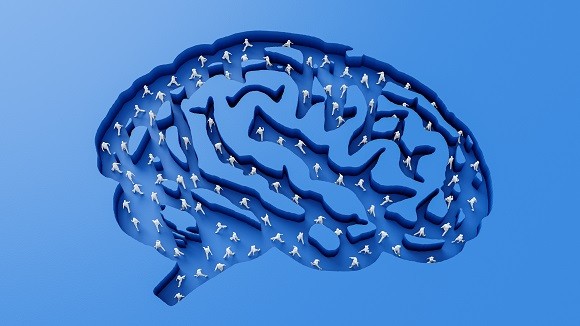
Cats learn the names of their friend cats in their daily lives
- Saho Takagi
- Atsuko Saito
- Hika Kuroshima
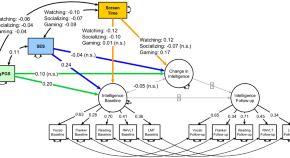
The impact of digital media on children’s intelligence while controlling for genetic differences in cognition and socioeconomic background
- Bruno Sauce
- Magnus Liebherr
- Torkel Klingberg
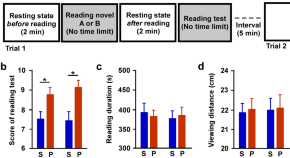
Reading on a smartphone affects sigh generation, brain activity, and comprehension
- Motoyasu Honma
- Yuri Masaoka
- Masahiko Izumizaki
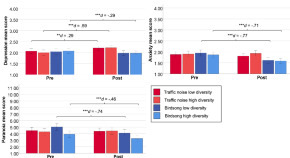
Birdsongs alleviate anxiety and paranoia in healthy participants
- J. Sundermann

SARS-CoV-2 spike protein induces cognitive deficit and anxiety-like behavior in mouse via non-cell autonomous hippocampal neuronal death
- Junyoung Oh
- Woo-Hyun Cho
- Sung Joong Lee
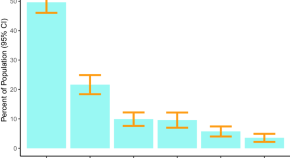
Prevalence, age of decision, and interpersonal warmth judgements of childfree adults
- Zachary P. Neal
- Jennifer Watling Neal

Acute and protracted abstinence from methamphetamine bidirectionally changes intrinsic excitability of indirect pathway spiny projection neurons in the dorsomedial striatum
- Sanghoon Choi
- Steven M. Graves
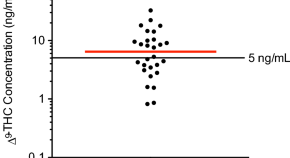
Indeterminacy of cannabis impairment and ∆ 9 -tetrahydrocannabinol (∆ 9 -THC) levels in blood and breath
- Gregory T. Wurz
- Michael W. DeGregorio
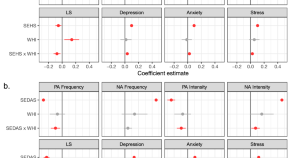
Perceiving societal pressure to be happy is linked to poor well-being, especially in happy nations
- Egon Dejonckheere
- Joshua J. Rhee
- Brock Bastian
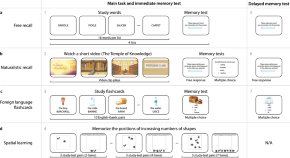
Fitness tracking reveals task-specific associations between memory, mental health, and physical activity
- Jeremy R. Manning
- Gina M. Notaro
- Paxton C. Fitzpatrick
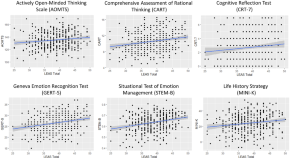
Higher emotional awareness is associated with greater domain-general reflective tendencies
- Michelle Persich
- William D. S. Killgore

Investigation of humans individual differences as predictors of their animal interaction styles, focused on the domestic cat
- Lauren R. Finka
- Lucia Ripari
- Marnie L. Brennan

Cichlids and stingrays can add and subtract ‘one’ in the number space from one to five
- V. Schluessel

Group VR experiences can produce ego attenuation and connectedness comparable to psychedelics
- David R. Glowacki
- Rhoslyn Roebuck Williams
- Mike Chatziapostolou
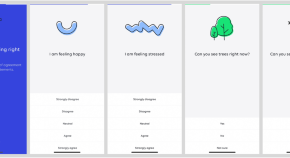
Smartphone-based ecological momentary assessment reveals mental health benefits of birdlife
- Ryan Hammoud
- Stefania Tognin
- Andrea Mechelli
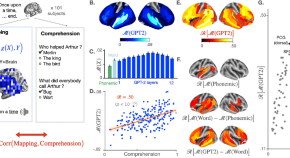
Deep language algorithms predict semantic comprehension from brain activity
- Charlotte Caucheteux
- Alexandre Gramfort
- Jean-Rémi King
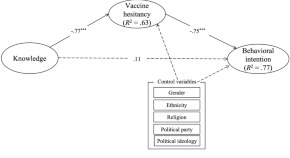
Misinformation of COVID-19 vaccines and vaccine hesitancy
- Sun Kyong Lee
- Juhyung Sun
- Shane Connelly
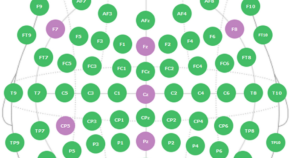
Children with autism spectrum disorder show atypical electroencephalographic response to processing contextual incongruencies
- Amparo V. Márquez-García
- Vasily A. Vakorin
- Sam M. Doesburg

Childhood temperament and adulthood personality differentially predict life outcomes
- Amanda J. Wright
- Joshua J. Jackson
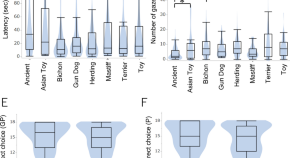
Identification of genes associated with human-canine communication in canine evolution
- Akiko Tonoike
- Ken-ichi Otaki
- Miho Nagasawa
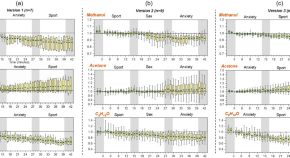
Breath chemical markers of sexual arousal in humans
- G. Pugliese
- J. Williams
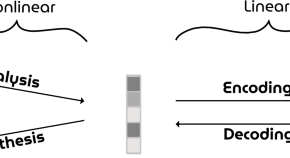
Hyperrealistic neural decoding for reconstructing faces from fMRI activations via the GAN latent space
- Thirza Dado
- Yağmur Güçlütürk
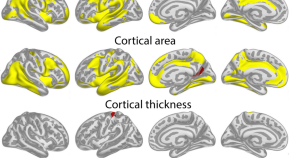
Brain aging differs with cognitive ability regardless of education
- Kristine B. Walhovd
- Lars Nyberg
- Anders M. Fjell

Short-sighted decision-making by those not vaccinated against COVID-19
- Julia G. Halilova
- Samuel Fynes-Clinton
- R. Shayna Rosenbaum

Groove rhythm stimulates prefrontal cortex function in groove enjoyers
- Takemune Fukuie
- Kazuya Suwabe
- Hideaki Soya
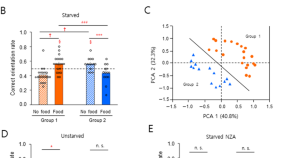
Human magnetic sense is mediated by a light and magnetic field resonance-dependent mechanism
- Kwon-Seok Chae
- Soo-Chan Kim
- Yongkuk Kim

Innovative composite tool use by Goffin’s cockatoos ( Cacatua goffiniana )
- Antonio J. Osuna-Mascaró
- Roger Mundry
- Alice M. I. Auersperg

Is a downwards head tilt a cross-cultural signal of dominance? Evidence for a universal visual illusion
- Zachary Witkower
- Alexander K. Hill
- Jessica L. Tracy
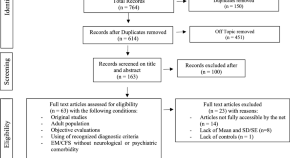
Systematic review and meta-analysis of cognitive impairment in myalgic encephalomyelitis/chronic fatigue syndrome (ME/CFS)
- Mehdi Aoun Sebaiti
- Mathieu Hainselin
- François Jérôme Authier
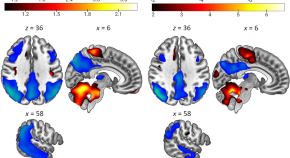
Identification and validation of Alzheimer’s disease-related metabolic brain pattern in biomarker confirmed Alzheimer’s dementia patients
- Matej Perovnik
- Petra Tomše

Impact of fasting on stress systems and depressive symptoms in patients with major depressive disorder: a cross-sectional study
- Britta Stapel
- Daniela Fraccarollo
- Kai G. Kahl
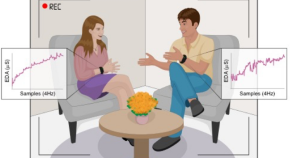
Bio-behavioral synchrony is a potential mechanism for mate selection in humans
- Nathalie klein Selle
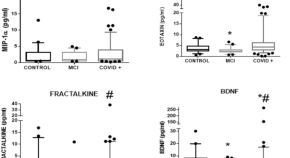
The cognitive and psychiatric subacute impairment in severe Covid-19
- Pedro J. Serrano-Castro
- Francisco J. Garzón-Maldonado
- Fernando Rodríguez de Fonseca
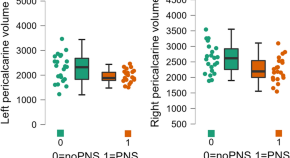
CNS imaging characteristics in fibromyalgia patients with and without peripheral nerve involvement
- Hans-Christoph Aster
- Dimitar Evdokimov
- Claudia Sommer
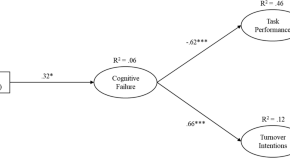
The effects of contracting Covid-19 on cognitive failures at work: implications for task performance and turnover intentions
- James W. Beck
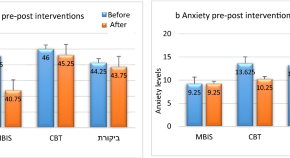
The effects of mindfulness meditation versus CBT for anxiety on emotional distress and attitudes toward seeking mental health treatment: a semi-randomized trial
- Daniela Aisenberg-Shafran
- Liav Shturm
Trait emotional intelligence in American pilots
- Zachary Dugger
- K. V. Petrides
- Bernadette McCrory

Mindfulness meditation increases default mode, salience, and central executive network connectivity
- Benno Bremer
- Kathrin Koch
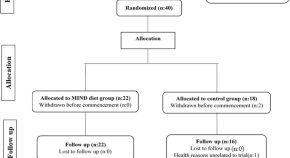
Effect of MIND diet intervention on cognitive performance and brain structure in healthy obese women: a randomized controlled trial
- Golnaz Arjmand
- Mojtaba Abbas-Zadeh
- Mohammad Hassan Eftekhari

Bodily ownership of an independent supernumerary limb: an exploratory study
- Kohei Umezawa
- Yuta Suzuki
- Yoichi Miyawaki
Anabolic–androgenic steroid use is associated with psychopathy, risk-taking, anger, and physical problems
- Bryan S. Nelson
- Tom Hildebrandt
- Pascal Wallisch
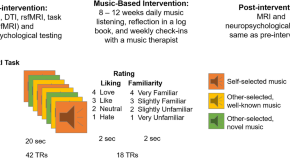
Longitudinal changes in auditory and reward systems following receptive music-based intervention in older adults
- Milena Aiello Quinci
- Alexander Belden
- Psyche Loui
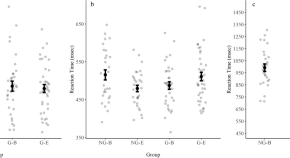
Reaction time and working memory in gamers and non-gamers
- Ronnie Lidor

Simulated visual hallucinations in virtual reality enhance cognitive flexibility
- Clara Rastelli
- Antonino Greco
- Nicola De Pisapia
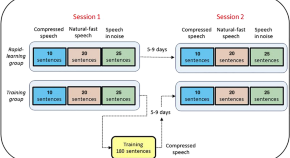
Rapid but specific perceptual learning partially explains individual differences in the recognition of challenging speech
- Karen Banai
- Hanin Karawani
- Yizhar Lavner
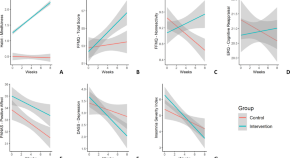
Mindfulness-based online intervention increases well-being and decreases stress after Covid-19 lockdown
- Francesco Bossi
- Francesca Zaninotto
- Emiliano Ricciardi
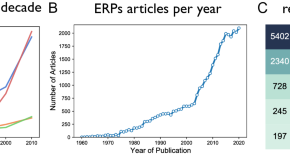
Automated meta-analysis of the event-related potential (ERP) literature
- Thomas Donoghue
- Bradley Voytek
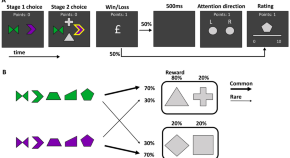
Model-based learning retrospectively updates model-free values
- Maaike M. H. Van Swieten
- Sanjay G. Manohar

Interaction with the future self in virtual reality reduces self-defeating behavior in a sample of convicted offenders
- Jean-Louis van Gelder
- Liza J. M. Cornet
- Job van der Schalk
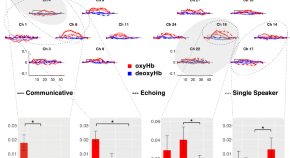
The newborn brain is sensitive to the communicative function of language
- Bálint Forgács
- Tibor Tauzin
- Judit Gervain
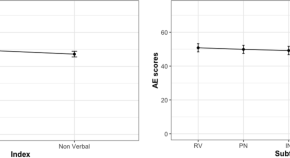
Cognitive profiles in children and adolescents with Down syndrome
- Sara Onnivello
- Francesca Pulina
- Silvia Lanfranchi

Short term treatment with a cocktail of rapamycin, acarbose and phenylbutyrate delays aging phenotypes in mice
- Warren Ladiges

Effects of exploring a novel environment on memory across the lifespan
- Judith Schomaker
- Valentin Baumann
- Marit F. L. Ruitenberg
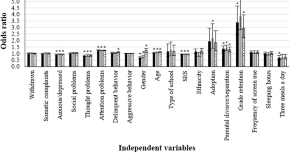
The impact of psychopathology on academic performance in school-age children and adolescents
- Mireia Pagerols
- Raquel Prat
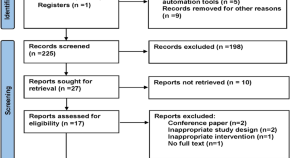
Effect of berry-based supplements and foods on cognitive function: a systematic review
- Negar Bonyadi
- Neda Dolatkhah
- Maryam Hashemian
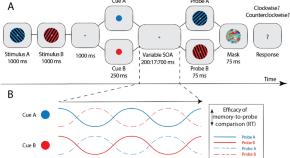
Attention rhythmically samples multi-feature objects in working memory
- Samson Chota
- Stefan Van der Stigchel

Functional brain connectomes reflect acute and chronic cannabis use
- J. G. Ramaekers
- N. L. Mason
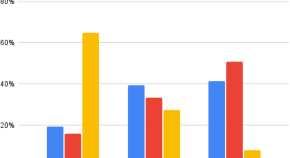
Simple questionnaires outperform behavioral tasks to measure socio-emotional skills in students
- Mélusine Boon-Falleur
- Adrien Bouguen
- Coralie Chevallier

Neuronal effects of glabellar botulinum toxin injections using a valenced inhibition task in borderline personality disorder
- Tillmann H. C. Kruger
- Jara Schulze
- M. Axel Wollmer

Naloxone’s dose-dependent displacement of [ 11 C]carfentanil and duration of receptor occupancy in the rat brain
- Kelly A. O’Conor
- Nora D. Volkow
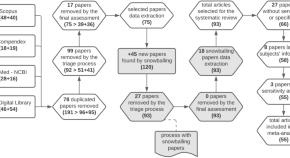
rs-fMRI and machine learning for ASD diagnosis: a systematic review and meta-analysis
- Caio Pinheiro Santana
- Emerson Assis de Carvalho
- Lucelmo Lacerda de Brito
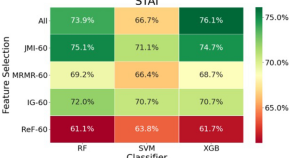
Machine learning and expression analyses reveal circadian clock features predictive of anxiety
- Rebeccah Overton
- Krista Ingram
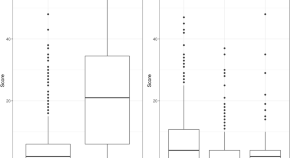
Impact of the COVID-19 pandemic on oral health and psychosocial factors
- Antonio Ciardo
- Marlinde M. Simon

Facial asymmetry in dogs with fear and aggressive behaviors towards humans
- Marcello Siniscalchi
- Serenella d’Ingeo
- Angelo Quaranta
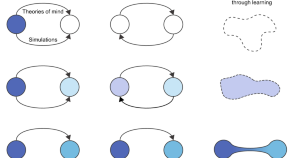
Superposition mechanism as a neural basis for understanding others
- Wataru Noguchi
- Hiroyuki Iizuka
- Shigeru Taguchi
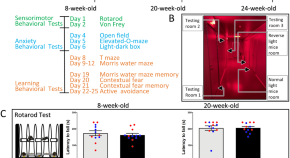
Influence of diurnal phase on behavioral tests of sensorimotor performance, anxiety, learning and memory in mice
- Chi-Hui Tsao
- Jonathan Flint
- Guo-Jen Huang
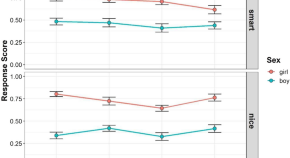
Gender stereotypes about intellectual ability in Japanese children
- Mako Okanda
- Xianwei Meng
- Yusuke Moriguchi
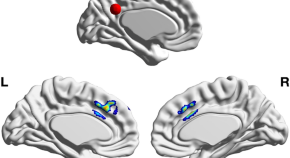
Meta-analytic evidence that mindfulness training alters resting state default mode network connectivity
- Hadley Rahrig
- David R. Vago
- Kirk Warren Brown
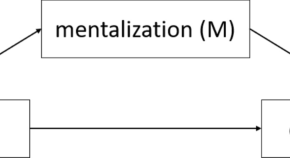
Mentalization and dissociation after adverse childhood experiences
- J. Wagner-Skacel
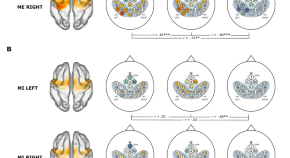
fMRI-based validation of continuous-wave fNIRS of supplementary motor area activation during motor execution and motor imagery
- Franziska Klein
- Stefan Debener
- Cornelia Kranczioch
Predictors of adherence to public health behaviors for fighting COVID-19 derived from longitudinal data
- Birga M. Schumpe
- Caspar J. Van Lissa
- N. Pontus Leander

High-resolution cortical parcellation based on conserved brain landmarks for localization of multimodal data to the nearest centimeter
- Hari McGrath
- Hitten P. Zaveri
- Dennis D. Spencer

Validation of the forced swim test in Drosophila , and its use to demonstrate psilocybin has long-lasting antidepressant-like effects in flies
- C. D. Nichols
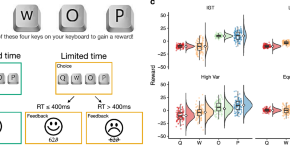
Time pressure changes how people explore and respond to uncertainty
- Charley M. Wu
- Eric Schulz
- Maarten Speekenbrink

Functional connectivity of brain networks with three monochromatic wavelengths: a pilot study using resting-state functional magnetic resonance imaging
- Marc Argilés
- Bernat Sunyer-Grau
- Cleofé Peña-Gómez

Behavioral coping phenotypes and associated psychosocial outcomes of pregnant and postpartum women during the COVID-19 pandemic
- Denise M. Werchan
- Cassandra L. Hendrix
- Natalie H. Brito
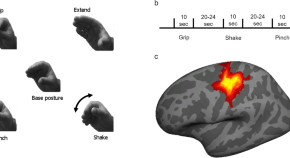
Spontaneous activity patterns in human motor cortex replay evoked activity patterns for hand movements
- Tomer Livne
- Maurizio Corbetta
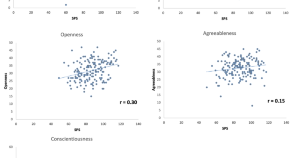
Sensory processing sensitivity and somatosensory brain activation when feeling touch
- Michael Schaefer
- Anja Kühnel
- Matti Gärtner
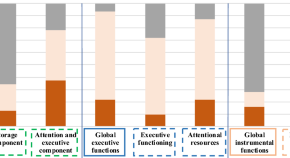
The interplay between cognition, depression, anxiety, and sleep in primary Sjogren’s syndrome patients
- Radjiv Goulabchand
- Elodie Castille
- Philippe Guilpain

Dynamics of adolescents’ smartphone use and well-being are positive but ephemeral
- Laura Marciano
- Charles C. Driver
- Anne-Linda Camerini
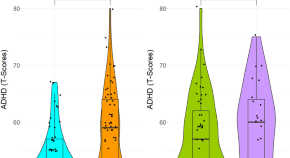
ADHD symptoms and use of anabolic androgenic steroids among male weightlifters
- Emilie Kildal
- Bjørnar Hassel
- Astrid Bjørnebekk
Facial mask personalization encourages facial mask wearing in times of COVID-19
- Johanna Palcu
- Martin Schreier
- Chris Janiszewski
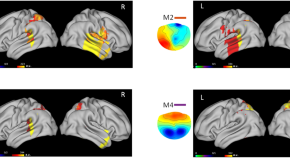
Exploring brain activity for positive and negative emotions by means of EEG microstates
- Giulia Prete
- Pierpaolo Croce
- Paolo Capotosto
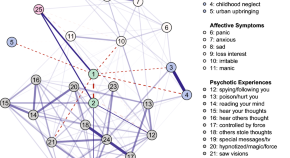
A network approach to relationships between cannabis use characteristics and psychopathology in the general population
- Linda T. Betz
- Nora Penzel
- Joseph Kambeitz
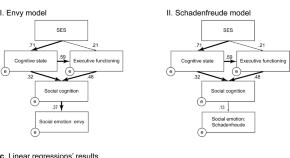
Socioeconomic status impacts cognitive and socioemotional processes in healthy ageing
- Joaquín Migeot
- Mariela Calivar
- Sol Fittipaldi
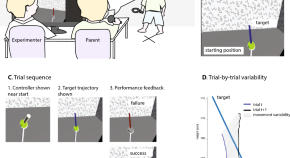
Parental praise and children’s exploration: a virtual reality experiment
- Eddie Brummelman
- Stathis Grapsas
- Katinka van der Kooij

Africans and Europeans differ in their facial perception of dominance and sex-typicality: a multidimensional Bayesian approach
- Vojtěch Fiala
- Petr Tureček
- Karel Kleisner

Brain information processing capacity modeling
- Tongtong Li
- Karl Friston
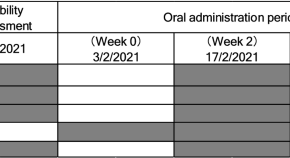
Safety evaluation of β-nicotinamide mononucleotide oral administration in healthy adult men and women
- Yuichiro Fukamizu
- Yoshiaki Uchida
- Takanobu Sakurai

Neural oscillations promoting perceptual stability and perceptual memory during bistable perception
- Michael Zhu
- Richard Hardstone
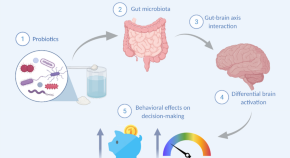
The effects of probiotics on risk and time preferences
- Aline M. Dantas
- Alexander T. Sack
- Teresa Schuhmann

Media-multitasking and cognitive control across the lifespan
- Natasha Matthews
- J. B. Mattingley
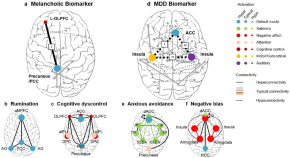
Depressive symptoms reduce when dorsolateral prefrontal cortex-precuneus connectivity normalizes after functional connectivity neurofeedback
- Jessica Elizabeth Taylor
- Takashi Yamada
- Tomokazu Motegi
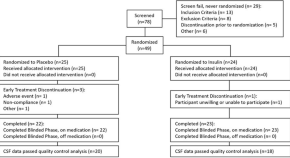
Intranasal insulin modulates cerebrospinal fluid markers of neuroinflammation in mild cognitive impairment and Alzheimer’s disease: a randomized trial
- Derek Kellar
- Thomas Register
- Suzanne Craft

COVID-19 conspiracy ideation is associated with the delusion proneness trait and resistance to update of beliefs
- O. Horntvedt
- P. Petrovic

Hand constraint reduces brain activity and affects the speed of verbal responses on semantic tasks
- Kunihito Tobita
- Shogo Makioka
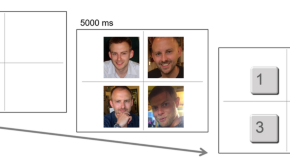
Impaired grouping of ambient facial images in autism
- Bayparvah Kaur Gehdu
- Katie L. H. Gray
- Richard Cook
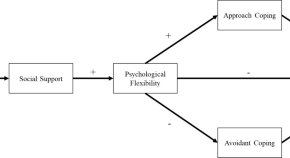
Social support, psychological flexibility and coping mediate the association between COVID-19 related stress exposure and psychological distress
- Richard Tindle
- Ahmed A. Moustafa
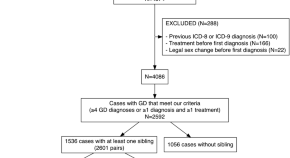
Gender dysphoria in twins: a register-based population study
- Georgios Karamanis
- Maria Karalexi
- Fotios C. Papadopoulos

Learning from communication versus observation in great apes
- Hanna Marno
- Christoph J. Völter
Quick links
- Explore articles by subject
- Guide to authors
- Editorial policies
- Bipolar Disorder
- Therapy Center
- When To See a Therapist
- Types of Therapy
- Best Online Therapy
- Best Couples Therapy
- Best Family Therapy
- Managing Stress
- Sleep and Dreaming
- Understanding Emotions
- Self-Improvement
- Healthy Relationships
- Student Resources
- Personality Types
- Guided Meditations
- Verywell Mind Insights
- 2023 Verywell Mind 25
- Mental Health in the Classroom
- Editorial Process
- Meet Our Review Board
- Crisis Support
Social Psychology Research Topics
Kendra Cherry, MS, is a psychosocial rehabilitation specialist, psychology educator, and author of the "Everything Psychology Book."
:max_bytes(150000):strip_icc():format(webp)/IMG_9791-89504ab694d54b66bbd72cb84ffb860e.jpg)
Emily is a board-certified science editor who has worked with top digital publishing brands like Voices for Biodiversity, Study.com, GoodTherapy, Vox, and Verywell.
:max_bytes(150000):strip_icc():format(webp)/Emily-Swaim-1000-0f3197de18f74329aeffb690a177160c.jpg)
Choosing topics for social psychology research papers or projects for class can be challenging. It is a broad and fascinating field, which can make it challenging to figure out what you want to investigate in your research.
Social psychology explores how individual thoughts, feelings, and behaviors are affected by social influences. It explores how each person's behavior is affected by their social environment.
This article explores a few different social psychology topics and research questions you might want to study in greater depth. It covers how to start your search for a topic as well as specific ideas you might choose to explore.
How to Find a Social Psychology Research Topic
As you begin your search, think about the questions that you have. What topics interest you? Following your own interests and curiosities can often inspire great research questions.
Choose a Sub-Topic
Social psychologists are interested in all aspects of social behavior. Some of the main areas of interest within the field include social cognition, social influence, and social relationships investigating subtopics such as conformity, groupthink, attitude formation, obedience, prejudice, and so on.
- Social cognition : How do we process and use information about social experiences? What kinds of biases influence how we engage with other people?
- Social influence: What are the key social factors that influence our attitudes and behavior? What are group dynamics and how do we understand patterns of behavior in groups?
- Social relationships : What are the different types of social relationships? How do they develop and change over time?
To help ensure that you select a topic that is specific enough, it can be helpful to start by confining your search to one of these main areas.
Browse Through Past Research
After narrowing down your choices, consider what questions you might have. Are there questions that haven't been fully answered by previous studies? At this point, it can be helpful to spend some time browsing through journal articles or books to see some examples of past findings and identify gaps in the literature.
You can also find inspiration and learn more about a topic by searching for keywords related to your topic in psychological databases such as PsycINFO or browsing through some professional psychology journals.
Narrow Down Your Specific Topic
Once you have a general topic, you'll need to narrow down your research. The goal is to choose a research question that is specific, measurable, and testable. Let's say you want to study conformity; An example of a good research question might be, “Are people more likely to conform when they are in a small group or a large group?” In this case, the specific topic of your paper would be how group size influences social conformity .
Review the Literature on Your Chosen Topic
After choosing a specific social psychology topic to research, the next step is to do a literature review. A literature review involves reading through the existing research findings related to a specific topic.
You are likely to encounter a great deal of information on your topic, which can seem overwhelming at times. You may find it helpful to start by reading review articles or meta-analysis studies. These are summaries of previous research on your topic or studies that incorporate a large pool of past research on the topic.
Talk to Your Instructor
Even if you are really excited to dive right in and start working on your project, there are some important preliminary steps you need to take.
Before you decide to tackle a project for your social psychology class, you should always clear your idea with your instructor. This initial step can save you a lot of time and hassle later on.
Your instructor can offer clear feedback on things you should and should not do while conducting your research and might be able to offer some helpful tips. Also, if you plan to implement your own social experiment, your school might require you to present to and gain permission from an institutional review board.
Thinking about the questions you have about social psychology can be a great way to discover topics for your own research. Once you have a general idea, explore the literature and refine your research question to make sure it is specific enough.
Examples of Social Psychology Research Topics
The following are some specific examples of different subjects you might want to investigate further as part of a social psychology research paper, experiment, or project:
Implicit Attitudes
How do implicit attitudes influence how people respond to others? This can involve exploring how people's attitudes towards different groups of people (e.g., men, women, ethnic minorities) influence their interactions with those groups. For example, one study found that 75% of people perceive men to be more intelligent than women .
In your own project, you might explore how implicit attitudes impact perceptions of qualities such as kindness, intelligence, leadership skills, or attractiveness.
Prosocial Behavior
You might also choose to focus on prosocial behavior in your research. This can involve investigating the reasons why people help others. Some questions you could explore further include:
- What motivates people to help others?
- When are people most likely to help others?
- How does helping others cause people to feel?
- What are the benefits of helping other people?
How do people change their attitudes in response to persuasion? What are the different techniques that can be used to persuade someone? What factors make some people more susceptible to persuasion than others?
One way to investigate this could be through collecting a wide variety of print advertisements and analyzing how persuasion is used. What types of cognitive and affective techniques are utilized? Do certain types of advertisements tend to use specific kinds of persuasive techniques ?
Another area of social psychology that you might research is aggression and violence. This can involve exploring the factors that lead to aggression and violence and the consequences of these behaviors. Some questions you might explore further include:
- When is violence most likely to occur?
- What factors influence violent behavior?
- Do traumatic experiences in childhood lead to more aggressive behavior in adulthood?
- Does viewing violent media content contribute to increased aggressive behavior in real life?
Prejudice and discrimination are areas that present a range of research opportunities. This can involve studying the different forms that prejudice takes (e.g., sexism, racism, ageism ), as well as the psychological effects of prejudice and discrimination. You might also want to investigate topics related to how prejudices form or strategies that can be used to reduce such discrimination.
Nonverbal Behavior
How do people respond when nonverbal communication does not match up to verbal behavior (for example, saying you feel great when your facial expressions and tone of voice indicate otherwise). Which signal do people respond to most strongly?
How good are people at detecting lies ? Have participants tell a group of people about themselves, but make sure some of the things are true while others are not. Ask members of the group which statements they thought were true and which they thought were false.
Social Norms
How do people react when social norms are violated? This might involve acting in a way that is outside the norm in a particular situation or enlisting friends to act out the behaviors while you observe.
Some examples that you might try include wearing unusual clothing, applauding inappropriately at the end of a class lecture, cutting in line in front of other people, or some other mildly inappropriate behavior. Keep track of your own thoughts as you perform the experiment and observe how people around you respond.
Online Social Behavior
Does online social networking make people more or less likely to interact with people in face-to-face or other offline settings? To investigate this further, you could create a questionnaire to assess how often people participate in social networking versus how much time they spend interacting with their friends in real-world settings.
Social Perception
How does our appearance impact how people respond to us? Ask some friends to help you by having two people dress up in dramatically different ways, one in a professional manner and one in a less conventional manner. Have each person engage in a particular action, then observe how they are treated and how other people's responses differ.
Social psychologists have found that attractiveness can produce what is known as a halo effect . Essentially, we tend to assume that people who are physically attractive are also friendly, intelligent, pleasant, and likable.
To investigate this topic, you could set up an experiment where you have participants look at photographs of people of varying degrees of physical attractiveness, and then ask them to rate each person based on a variety of traits, including social competence, kindness, intellect, and overall likability.
Think about how this might affect a variety of social situations, including how employees are selected or how jurors in a criminal case might respond.
Social psychology is a broad field, so there are many different subtopics you might choose to explore in your research. Implicit attitudes, prosocial behavior, aggression, prejudice, and social perception are just a few areas you might want to consider.
A Word From Verywell
Social psychology topics can provide a great deal of inspiration for further research, whether you are writing a research paper or conducting your own experiment. In addition to some of the social psychology topics above, you can also draw inspiration from your own curiosity about social behavior or examine social issues that you see taking place in the world around you.
American Psychological Association. Frequently asked questions about institutional review boards .
Storage D, Charlesworth TES, Banaji M, Cimpian A. Adults and children implicitly associate brilliance with men more than women . J Exp Soc Psychol . 2012;90:104020. doi:10.1016/j.jesp.2020.104020
Talamas SN, Mavor KI, Perrett DI. Blinded by beauty: Attractiveness bias and accurate perceptions of academic performance . PLoS ONE . 2016;11(2):e0148284. doi:10.1371/journal.pone.0148284
By Kendra Cherry, MSEd Kendra Cherry, MS, is a psychosocial rehabilitation specialist, psychology educator, and author of the "Everything Psychology Book."
- Privacy Policy
Buy Me a Coffee

Home » 500+ Psychology Research Paper Topics
500+ Psychology Research Paper Topics

Psychology is a fascinating field that encompasses the study of the human mind, behavior, and mental processes. It is a multifaceted discipline that has evolved significantly over the years, with new research shedding light on various aspects of human behavior and cognition. As a result, there are numerous research topics within the field of psychology that can be explored, providing a wealth of opportunities for students and scholars alike to investigate and learn. Whether you are interested in the workings of the brain, social dynamics, mental health, or other related areas, there is sure to be a psychology research topic that will pique your interest. In this article we will highlight some of the most interesting and relevant topics in the field of psychology today for Students and Researchers.
Psychology Research Paper Topics
Psychology Research Paper Topics are as follows:
- The effects of social media on mental health and well-being.
- The role of childhood trauma in the development of personality disorders.
- The relationship between sleep deprivation and cognitive performance.
- The impact of mindfulness practices on reducing anxiety and depression.
- The psychology of addiction and its treatment approaches.
- The influence of culture on the perception and expression of emotions.
- The psychology of motivation and goal-setting.
- The impact of bullying on mental health and social development.
- The psychology of decision-making and risk-taking behaviors.
- The effects of nature exposure on mental health and well-being.
- The psychological factors contributing to substance abuse and addiction relapse.
- The role of personality traits in predicting job satisfaction and success.
- The psychology of creativity and innovation.
- The impact of early attachment styles on adult relationships.
- The psychology of prejudice and discrimination.
- The relationship between stress and physical health.
- The role of emotions in decision-making and problem-solving.
- The psychology of learning and memory.
- The effectiveness of cognitive-behavioral therapy in treating anxiety and depression.
- The influence of parenting styles on child development and mental health.
- The psychology of humor: why we find things funny and how it affects our mental health.
- The effects of childhood neglect on social and emotional development.
- The psychology of procrastination and strategies for overcoming it.
- The impact of digital technology on attention span and concentration.
- The role of self-esteem in mental health and well-being.
- The psychology of forgiveness and its effects on mental health and relationships.
- The relationship between personality traits and political beliefs.
- The effects of trauma on brain development and function.
- The psychology of group dynamics and teamwork.
- The role of exercise in mental health and well-being.
- The psychology of attraction and romantic relationships.
- The effects of technology addiction on mental health and well-being.
- The relationship between diet and mental health.
- The psychology of workplace diversity and inclusion.
- The effects of music on mood and cognitive function.
- The impact of childhood bullying on adult mental health and relationships.
- The psychology of optimism and its effects on mental health and well-being.
- The relationship between personality traits and leadership effectiveness.
- The effects of social isolation on mental health.
- The psychology of decision-making in group contexts.
- The impact of social support on mental health and well-being.
- The role of emotion regulation in mental health and well-being.
- The effects of chronic stress on physical and mental health.
- The psychology of risk perception and behavior.
- The impact of exercise on cognitive function and brain health.
- The psychology of altruism and prosocial behavior.
- The relationship between spirituality and mental health.
- The effects of childhood abuse on adult mental health and well-being.
- The psychology of power and its effects on decision-making and behavior.
- The impact of mindfulness on physical health and well-being.
- The psychology of parenting and its effects on child development.
- The effects of gratitude on mental health and well-being.
- The psychology of grief and bereavement.
- The impact of social media on social comparison and self-esteem.
- The psychology of resilience and coping.
- The effects of sleep on physical and mental health.
- The psychology of happiness and well-being.
- The relationship between personality traits and romantic relationship satisfaction.
- The impact of social norms on behavior.
- The psychology of cognitive biases and decision-making errors.
- The effects of nature exposure on cognitive function and well-being.
- The psychology of body image and its effects on mental health.
- The impact of work-life balance on mental health and well-being.
- The psychology of shame and guilt.
- The effects of trauma on memory and cognition.
- The role of empathy in mental health and well-being.
- The psychology of cyberbullying and its effects on mental health.
- The impact of aging on cognitive function and well-being.
- The psychology of human sexuality.
- The effects of mindfulness on social and emotional functioning.
- The effects of social comparison on mental health and well-being.
- The psychology of addiction and relapse prevention strategies.
- The impact of social support on addiction recovery.
- The psychology of motivation and self-determination.
- The effects of trauma on attachment and relationship formation.
- The psychology of bystander intervention in emergencies.
- The impact of exercise on mood and anxiety.
- The role of cultural values in mental health and well-being.
- The psychology of moral decision-making.
- The effects of video games on cognitive function and social development.
- The psychology of burnout and work-related stress.
- The relationship between personality traits and academic performance.
- The impact of social identity on self-esteem and mental health.
- The psychology of attachment in adult romantic relationships.
- The effects of mindfulness on emotion regulation and impulse control.
- The psychology of stress and coping strategies.
- The impact of social media on self-esteem and body image.
- The psychology of decision-making in romantic relationships.
- The effects of childhood trauma on substance use and addiction.
- The psychology of resilience and post-traumatic growth.
- The impact of cultural stereotypes on cognitive function and performance.
- The psychology of identity formation and its effects on mental health.
- The effects of social support on academic success and well-being.
- The psychology of change and behavior modification.
- The impact of self-compassion on mental health and well-being.
- The psychology of deception and lying behavior.
- The effects of sleep on mood and emotion regulation.
- The psychology of intergroup relations and prejudice reduction.
- The impact of meditation on cognitive function and well-being.
- The psychology of procrastination and time management.
- The effects of cultural assimilation on mental health and well-being.
- The psychology of body language and nonverbal communication.
- The impact of nature exposure on stress reduction and well-being.
- The psychology of forgiveness and its effects on relationship satisfaction.
- The effects of social comparison on body image and eating disorders.
- The psychology of motivation and goal-setting in academic settings.
- The impact of cultural diversity on team dynamics and performance.
- The psychology of self-disclosure in romantic relationships.
- The effects of social support on health outcomes in chronic illness.
- The psychology of human memory and its fallibility.
- The impact of cultural values on mental health stigma.
- The psychology of resilience and coping strategies in chronic illness.
- The effects of social support on job satisfaction and performance.
- The psychology of negotiation and conflict resolution.
- The impact of social identity on health behaviors and outcomes.
- The psychology of aggression and its effects on mental health.
- The effects of mindfulness on cognitive aging and dementia prevention.
- The psychology of attachment in parent-child relationships.
- The impact of cultural diversity on intergroup relations.
- The psychology of decision-making in medical settings.
- The effects of social comparison on consumer behavior.
- The psychology of success and achievement motivation.
- The impact of technology on social skills and emotional intelligence.
- The psychology of deception detection and its implications for criminal justice.
- The effects of music on mood and well-being.
- The psychology of gender identity and its effects on mental health.
- The impact of social media on political attitudes and polarization.
- The psychology of flow and optimal experience in work and leisure activities.
- The effects of sleep deprivation on cognitive function and decision-making.
- The psychology of leadership and its effects on organizational outcomes.
- The impact of cultural values on body image and eating disorders.
- The psychology of self-compassion and its effects on relationship satisfaction.
- The effects of social support on postpartum depression and anxiety.
- The psychology of attachment in foster care and adoption.
- The impact of cultural values on parenting styles and child development.
- The psychology of resilience and post-disaster recovery.
- The effects of social support on mental health in LGBTQ+ individuals.
- The psychology of motivation and performance in sports.
- The impact of cultural values on coping with illness and disability.
- The psychology of creativity and its relationship with mental health.
- The effects of mindfulness on pain management and chronic illness.
- The impact of social identity on job satisfaction and turnover.
- The psychology of substance use disorders in older adults.
- The effects of social comparison on academic motivation and achievement.
- The psychology of decision-making in financial investments.
- The impact of cultural values on mental health treatment-seeking behaviors.
- The psychology of attachment in sibling relationships.
- The effects of social support on post-traumatic stress disorder (PTSD).
- The psychology of cognitive biases and decision-making.
- The impact of cultural values on aging and end-of-life care.
- The psychology of motivation and goal-setting in weight loss.
- The effects of social comparison on social anxiety.
- The psychology of group dynamics and its implications for teamwork.
- The impact of cultural values on sexual identity and expression.
- The psychology of resilience and coping in high-stress occupations.
- The effects of social support on recovery from traumatic brain injury.
- The psychology of memory reconsolidation and its potential for trauma therapy.
- The impact of cultural values on mental health in immigrant populations.
- The psychology of gender stereotypes and their effects on behavior and attitudes.
- The effects of social comparison on body dissatisfaction and cosmetic procedures.
- The psychology of resilience and coping in military veterans.
- The impact of cultural values on mental health outcomes in refugees.
- The psychology of goal-setting and its relationship with happiness.
- The effects of social support on depression and anxiety in cancer patients.
- The psychology of self-esteem and its relationship with social media use.
- The impact of cultural values on attitudes toward mental health treatment.
- The psychology of attachment in teacher-student relationships.
- The effects of social comparison on substance use and addiction.
- The psychology of decision-making in environmental conservation.
- The impact of cultural values on romantic relationships and marital satisfaction.
- The impact of cultural values on mental health and illness stigma.
- The psychology of motivation and adherence in exercise and physical activity.
- The psychology of mindfulness and its effects on stress reduction and well-being.
- The impact of technology on social comparison and body dissatisfaction in young adults.
- The psychology of moral decision-making and its relationship with personality.
- The effects of social comparison on academic self-concept and motivation in graduate students.
- The psychology of sleep disorders and their effects on mental and physical health.
- The impact of cultural values on parenting practices and child development.
- The psychology of motivation and adherence in rehabilitation and physical therapy.
- The effects of social support on mental health in refugees and immigrants.
- The psychology of cognitive biases and their effects on decision-making.
- The impact of technology on mental health treatment and therapy outcomes.
- The psychology of motivation and performance in sports and athletic competition.
- The effects of social comparison on academic self-concept and achievement in high school students.
- The psychology of grief and its effects on mental and physical health.
- The impact of cultural values on attitudes toward aging and age-related stereotypes.
- The psychology of memory and its relationship with sleep quality and quantity.
- The effects of social support on mental health in military veterans.
- The psychology of addiction and its effects on relationships and social functioning.
- The impact of technology on cognitive function and attention in older adults.
- The psychology of motivation and adherence in diabetes management.
- The effects of social comparison on body dissatisfaction and eating disorders in non-binary individuals.
- The psychology of child development and its relationship with parenting practices.
- The impact of cultural values on attitudes toward mental health treatment seeking.
- The psychology of motivation and adherence in cancer treatment.
- The effects of social support on mental health in incarcerated individuals.
- The psychology of personality traits and their effects on romantic relationships.
- The impact of technology on social connectedness and loneliness.
- The psychology of motivation and adherence in cardiac rehabilitation.
- The effects of social comparison on academic self-concept and achievement in elementary school students.
- The psychology of gender identity and its effects on mental health and well-being.
- The impact of cultural values on attitudes toward substance use and addiction.
- The psychology of self-esteem and its relationship with interpersonal communication.
- The effects of social support on mental health in individuals with chronic fatigue syndrome.
- The psychology of emotion regulation and its relationship with substance use.
- The impact of technology on cognitive function and attention in children and adolescents.
- The psychology of motivation and adherence in HIV/AIDS treatment.
- The effects of social comparison on body dissatisfaction and eating disorders in individuals with physical disabilities.
- The psychology of resilience and coping in individuals with chronic pain.
- The impact of cultural values on attitudes toward suicide and suicide prevention.
- The psychology of attachment and its effects on emotion regulation and well-being.
- The effects of social support on mental health in individuals with eating disorders.
- The psychology of positive psychology interventions and their effects on well-being.
- The impact of technology on social skills and social anxiety in adolescents.
- The psychology of motivation and adherence in organ transplant recipients.
- The effects of social comparison on academic self-concept and achievement in international students.
- The psychology of depression and its effects on cognitive function and memory.
- The impact of cultural values on attitudes toward mental health in religious communities.
- The psychology of resilience and coping in individuals with traumatic brain injury.
- The psychology of motivation and performance in the workplace.
- The effects of social comparison on body image and self-esteem in adolescence.
- The psychology of forgiveness and its effects on mental health and well-being.
- The impact of technology on attention and distraction.
- The psychology of motivation and adherence in physical therapy.
- The effects of social support on mental health in individuals with chronic illness.
- The psychology of decision-making in healthcare and medical treatments.
- The impact of cultural values on adolescent identity development.
- The psychology of self-efficacy and its relationship with academic achievement.
- The effects of social comparison on academic self-concept and self-esteem.
- The psychology of resilience and coping in survivors of sexual assault and harassment.
- The impact of cultural values on parental involvement in education.
- The psychology of motivation and adherence in mental health treatment.
- The effects of social comparison on body dissatisfaction and disordered eating.
- The psychology of trauma and its effects on memory and emotional processing.
- The impact of technology on sleep quality and quantity.
- The psychology of motivation and performance in online learning.
- The effects of social support on mental health in individuals with chronic pain.
- The psychology of personality and its relationship with career choice and success.
- The impact of cultural values on attitudes toward mental health stigma.
- The psychology of attachment in peer relationships.
- The effects of social comparison on academic achievement and motivation in college students.
- The psychology of emotional intelligence and its relationship with workplace success.
- The impact of technology on social skills and interpersonal communication.
- The psychology of motivation and adherence in smoking cessation.
- The effects of social support on mental health in older adults.
- The psychology of resilience and coping in survivors of natural disasters.
- The impact of cultural values on sexual health and behavior.
- The psychology of personality disorders and their effects on relationships.
- The effects of social comparison on body image and eating behaviors in men.
- The psychology of cognitive development in infants and young children.
- The impact of technology on stress and anxiety.
- The psychology of motivation and adherence in weight management.
- The effects of social support on mental health in caregivers.
- The psychology of emotion regulation and its effects on mental health.
- The impact of cultural values on aging and cognitive decline.
- The psychology of attachment in romantic relationships.
- The effects of social comparison on academic performance and self-concept in middle school students.
- The psychology of resilience and coping in individuals with chronic illness.
- The impact of technology on identity formation and self-esteem.
- The psychology of motivation and adherence in addiction recovery.
- The effects of social support on mental health in individuals with disabilities.
- The psychology of creativity and its effects on mental health and well-being.
- The impact of cultural values on social support networks.
- The effects of social comparison on social anxiety and self-esteem in individuals with social anxiety disorder.
- The psychology of parenting styles and their effects on child development.
- The impact of technology on mental health and well-being in children and adolescents.
- The psychology of resilience and coping in individuals experiencing homelessness.
- The effects of social support on mental health in individuals with chronic illnesses.
- The psychology of attachment and its effects on social support seeking.
- The impact of cultural values on attitudes toward mental health in marginalized communities.
- The psychology of motivation and adherence in bariatric surgery patients.
- The effects of social comparison on body image dissatisfaction in pregnant women.
- The psychology of resilience and coping in individuals with chronic kidney disease.
- The impact of technology on cognitive function and attention in older adults with dementia.
- The psychology of cognitive development and its relationship with educational pedagogy.
- The psychology of motivation and adherence in pulmonary rehabilitation.
- The impact of cultural values on attitudes toward mental health in Asian communities.
- The psychology of decision-making and its relationship with impulsivity.
- The effects of social comparison on academic self-concept and achievement in individuals with autism spectrum disorder.
- The psychology of resilience and coping in individuals with chronic obstructive pulmonary disease.
- The impact of technology on cognitive function and attention in individuals with attention deficit hyperactivity disorder.
- The psychology of emotional intelligence and its effects on workplace performance.
- The effects of social support on mental health in individuals with fibromyalgia.
- The psychology of cognitive development and its relationship with language acquisition.
- The impact of cultural values on attitudes toward mental health in African American communities.
- The psychology of motivation and adherence in dialysis patients.
- The effects of social comparison on body image dissatisfaction in individuals with eating disorders.
- The psychology of resilience and coping in individuals with chronic heart failure.
- The impact of technology on cognitive function and attention in individuals with anxiety disorders.
- The psychology of cognitive biases and their effects on problem-solving.
- The effects of social support on mental health in individuals with multiple sclerosis.
- The psychology of motivation and adherence in amputees.
- The impact of cultural values on attitudes toward mental health in Hispanic/Latino communities.
- The psychology of decision-making and its relationship with risk-taking behavior.
- The effects of social comparison on academic self-concept and achievement in individuals with dyslexia.
- The psychology of resilience and coping in individuals with chronic liver disease.
- The impact of technology on cognitive function and attention in individuals with schizophrenia.
- The psychology of cognitive development and its relationship with visual perception.
- The effects of social support on mental health in individuals with bipolar disorder.
- The psychology of motivation and adherence in spinal cord injury patients.
- The impact of cultural values on attitudes toward mental health in Native American communities.
- The psychology of cognitive biases and their effects on creativity.
- The effects of social comparison on body image dissatisfaction in individuals with body dysmorphic disorder.
- The psychology of resilience and coping in individuals with chronic gastrointestinal disorders.
- The impact of technology on cognitive function and attention in individuals with substance use disorders.
- The psychology of cognitive development and its relationship with attention span.
- The effects of social support on mental health in individuals with post-traumatic stress disorder.
- The psychology of motivation and adherence in organ donation recipients.
- The impact of cultural values on attitudes toward mental health in Middle Eastern communities.
- The psychology of personality and its effects on team dynamics.
- The effects of social comparison on academic self-concept and achievement in individuals with attention deficit hyperactivity disorder.
- The psychology of resilience and coping in individuals with chronic autoimmune diseases.
- The impact of technology on cognitive function and attention in individuals with depression.
- The psychology of stress and its effects on workplace burnout.
- The impact of social media on body image dissatisfaction in adolescents.
- The effects of meditation on anxiety and depression in older adults.
- The psychology of motivation and adherence in cancer patients.
- The impact of cultural values on attitudes toward mental health in the LGBTQ+ community.
- The psychology of cognitive development and its relationship with memory.
- The effects of social support on mental health in individuals with traumatic brain injuries.
- The psychology of addiction and its effects on family relationships.
- The impact of music on cognitive function and attention in individuals with dementia.
- The psychology of attachment and its effects on romantic relationships.
- The effects of social comparison on body image dissatisfaction in individuals with physical disabilities.
- The psychology of resilience and coping in individuals with chronic fatigue syndrome.
- The impact of technology on cognitive function and attention in individuals with obsessive-compulsive disorder.
- The effects of social support on mental health in individuals with rare diseases.
- The psychology of motivation and adherence in individuals with HIV/AIDS.
- The impact of cultural values on attitudes toward mental health in South Asian communities.
- The psychology of personality and its effects on leadership effectiveness.
- The effects of social comparison on academic self-concept and achievement in individuals with learning disabilities.
- The impact of technology on cognitive function and attention in individuals with postpartum depression.
- The psychology of cognitive development and its relationship with spatial reasoning.
- The effects of social support on mental health in individuals with Parkinson’s disease.
- The psychology of addiction and its effects on mental health.
- The impact of mindfulness on cognitive function and attention in individuals with attention deficit hyperactivity disorder.
- The psychology of attachment and its effects on child development.
- The effects of social comparison on body image dissatisfaction in individuals with gender dysphoria.
- The impact of cultural values on attitudes toward mental health in Eastern European communities.
- The psychology of cognitive biases and their effects on interpersonal relationships.
- The effects of social support on mental health in individuals with intellectual disabilities.
- The psychology of motivation and adherence in individuals with chronic obstructive pulmonary disease.
- The impact of technology on cognitive function and attention in individuals with borderline personality disorder.
- The psychology of cognitive development and its relationship with executive function.
- The effects of social comparison on academic self-concept and achievement in individuals with anxiety disorders.
- The impact of cultural values on attitudes toward mental health in Native Hawaiian and Pacific Islander communities.
- The psychology of personality and its effects on romantic relationships.
- The effects of social support on mental health in individuals with spinal cord injuries.
- The psychology of addiction and its effects on criminal behavior.
- The impact of technology on cognitive function and attention in individuals with bipolar disorder.
- The psychology of attachment and its effects on social development.
- The effects of social comparison on body image dissatisfaction in individuals with acne.
- The psychology of resilience and coping in individuals with chronic respiratory diseases.
- The impact of cultural values on attitudes toward mental health in Middle Eastern and North African communities.
- The psychology of cognitive biases and their effects on emotional regulation.
- The effects of social support on mental health in caregivers of individuals with chronic illnesses.
- The impact of trauma on attachment styles and romantic relationships.
- The psychology of procrastination and its effects on academic performance.
- The effects of mindfulness on stress and burnout in healthcare professionals.
- The psychology of cognitive development and its relationship with theory of mind.
- The effects of social support on mental health in individuals with autoimmune diseases.
- The psychology of addiction and its effects on family dynamics in Asian American communities.
- The impact of social media on self-esteem and body image in adult women.
- The psychology of resilience and coping in individuals with traumatic brain injuries.
- The effects of cognitive behavioral therapy on anxiety and depression in individuals with chronic pain.
- The psychology of personality and its effects on mental health stigma.
- The impact of cultural values on attitudes toward mental health in Latinx communities.
- The psychology of cognitive biases and their effects on stereotype formation.
- The psychology of motivation and adherence in individuals with chronic kidney disease.
- The impact of technology on cognitive function and attention in individuals with autism spectrum disorder.
- The psychology of resilience and coping in individuals with cancer.
- The impact of cultural values on attitudes toward mental health in Indigenous communities.
- The psychology of attachment and its effects on child behavior problems.
- The effects of cognitive behavioral therapy on anxiety and depression in individuals with multiple sclerosis.
- The psychology of personality and its effects on romantic partner selection.
- The impact of social support on mental health in individuals with substance use disorders.
- The psychology of emotional regulation and its effects on interpersonal relationships.
- The effects of social comparison on body image dissatisfaction in individuals with alopecia.
- The psychology of resilience and coping in individuals with heart disease.
- The impact of cultural values on attitudes toward mental health in immigrant communities.
- The psychology of cognitive biases and their effects on judgment and decision-making.
- The effects of social support on mental health in individuals with chronic obstructive pulmonary disease.
- The psychology of motivation and adherence in individuals with diabetes.
- The psychology of cognitive development and its relationship with moral reasoning.
- The effects of social comparison on academic self-concept and achievement in individuals with visual impairments.
- The psychology of resilience and coping in individuals with chronic migraines.
- The impact of cultural values on attitudes toward mental health in rural communities.
- The psychology of attachment and its effects on infant sleep patterns.
- The effects of cognitive behavioral therapy on anxiety and depression in individuals with irritable bowel syndrome.
- The psychology of personality and its effects on workplace conflict resolution.
- The impact of social support on mental health in individuals with fibromyalgia.
- The psychology of emotional intelligence and its relationship with job satisfaction.
- The effects of social comparison on body image dissatisfaction in individuals with vitiligo.
- The psychology of resilience and coping in individuals with chronic arthritis.
- The impact of cultural values on attitudes toward mental health in Caribbean communities.
- The psychology of cognitive biases and their effects on interpersonal trust.
- The effects of social support on mental health in individuals with chronic kidney disease.
- The impact of attachment styles on marital satisfaction.
- The psychology of emotional regulation and its effects on academic achievement.
- The psychology of cognitive development and its relationship with executive functioning.
- The effects of cognitive behavioral therapy on anxiety and depression in individuals with chronic kidney disease.
- The psychology of personality and its effects on job performance.
- The impact of social support on mental health in individuals with chronic pain.
- The psychology of emotional intelligence and its relationship with leadership effectiveness.
- The psychology of cognitive development and its relationship with working memory.
- The psychology of attachment and its effects on romantic relationship satisfaction.
- The effects of cognitive behavioral therapy on anxiety and depression in individuals with chronic obstructive pulmonary disease.
- The psychology of personality and its effects on stress and coping.
- The impact of social support on mental health in individuals with chronic migraines.
- The psychology of emotional intelligence and its relationship with interpersonal conflict resolution.
- The effects of social comparison on body image dissatisfaction in individuals with psoriasis.
- The impact of cultural values on attitudes toward mental health in East Asian communities.
- The psychology of cognitive biases and their effects on decision-making under uncertainty.
- The effects of social support on mental health in individuals with chronic heart failure.
- The psychology of cognitive development and its relationship with attentional control.
- The effects of cognitive behavioral therapy on anxiety and depression in individuals with chronic migraines.
- The psychology of personality and its effects on emotional regulation.
- The impact of social support on mental health in individuals with chronic back pain.
- The psychology of emotional intelligence and its relationship with job performance.
- The effects of social comparison on body image dissatisfaction in individuals with rosacea.
- The impact of cultural values on attitudes toward mental health in LGBTQ+ communities.
- The psychology of cognitive biases and their effects on creativity in the arts.
- The effects of social support on mental health in individuals with chronic obstructive pulmonary disease and anxiety.
- The psychology of cognitive development and its relationship with problem-solving.
- The psychology of attachment and its effects on parent-child communication.
- The effects of cognitive behavioral therapy on anxiety and depression in individuals with chronic heart failure.
- The psychology of personality and its effects on interpersonal communication.
- The impact of social support on mental health in individuals with chronic migraines and anxiety.
- The psychology of emotional intelligence and its relationship with conflict resolution in romantic relationships.
- The effects of social comparison on body image dissatisfaction in individuals with eczema.
- The impact of trauma on personality development.
- The effects of mindfulness-based interventions on chronic pain management.
- The psychology of motivation and its relationship with achievement in academic settings.
- The impact of cultural values on the experience of shame and guilt.
- The effects of cognitive behavioral therapy on anxiety and depression in individuals with fibromyalgia.
- The psychology of personality and its effects on romantic relationship conflict.
- The impact of social support on mental health in individuals with rheumatoid arthritis.
- The psychology of emotional intelligence and its relationship with conflict resolution in work settings.
- The psychology of cognitive biases and their effects on decision-making in politics.
- The effects of social support on mental health in individuals with chronic obstructive pulmonary disease and depression.
- The psychology of cognitive development and its relationship with self-awareness.
- The impact of technology on cognitive function and attention in individuals with post-traumatic stress disorder.
- The psychology of attachment and its effects on emotional regulation in adolescence.
- The effects of cognitive behavioral therapy on anxiety and depression in individuals with rheumatoid arthritis.
- The psychology of personality and its effects on substance use and addiction.
- The impact of social support on mental health in individuals with chronic gastrointestinal disorders.
- The psychology of emotional intelligence and its relationship with effective communication in romantic relationships.
- The psychology of cognitive biases and their effects on consumer behavior.
- The effects of social support on mental health in individuals with chronic obstructive pulmonary disease and insomnia.
- The psychology of cognitive development and its relationship with social cognition.
- The psychology of attachment and its effects on mental health in adulthood.
- The effects of cognitive behavioral therapy on anxiety and depression in individuals with chronic gastrointestinal disorders.
- The psychology of personality and its effects on intimate partner violence.
- The impact of social support on mental health in individuals with chronic kidney disease and depression.
- The psychology of emotional intelligence and its relationship with effective leadership.
- The effects of social comparison on body image dissatisfaction in individuals with scars.
- The psychology of resilience and coping in individuals with chronic obstructive pulmonary disease and depression.
- The psychology of cognitive biases and their effects on consumer decision-making.
- The effects of social support on mental health in individuals with chronic obstructive pulmonary disease and anxiety and depression.
- The impact of technology on cognitive function and attention in individuals with multiple sclerosis.
- The psychology of attachment and its effects on mental health in older adults.
- The psychology of personality and its effects on parenting styles.
- The impact of social support on mental health in individuals with chronic pain and depression.
- The psychology of emotional intelligence and its relationship with effective conflict resolution in work settings.
- The psychology of resilience and coping in individuals with chronic pain and anxiety.
- The effects of cognitive behavioral therapy on insomnia in individuals with fibromyalgia.
- The psychology of attachment and its effects on emotional regulation in children.
- The effects of social support on mental health in individuals with chronic pain and post-traumatic stress disorder.
- The psychology of emotional intelligence and its relationship with effective communication in the workplace.
- The impact of social support on mental health in individuals with traumatic brain injury.
- The psychology of personality and its effects on work stress and burnout.
- The effects of cognitive behavioral therapy on depression and anxiety in individuals with multiple sclerosis.
- The impact of technology on cognitive function and attention in individuals with attention-deficit/hyperactivity disorder.
- The effects of social support on mental health in individuals with chronic obstructive pulmonary disease and post-traumatic stress disorder.
- The psychology of resilience and coping in individuals with chronic pain and depression.
- The impact of cultural values on attitudes toward mental health in Muslim communities.
- The psychology of cognitive biases and their effects on memory recall.
- The effects of social support on mental health in individuals with chronic pain and fibromyalgia.
- The psychology of personality and its effects on job satisfaction and turnover.
- The impact of social support on mental health in individuals with spinal cord injury.
- The psychology of emotional intelligence and its relationship with effective conflict resolution in romantic relationships.
- The psychology of cognitive development and its relationship with attention.
- The effects of social support on mental health in individuals with chronic pain and anxiety and depression.
- The psychology of resilience and coping in individuals with chronic obstructive pulmonary disease and anxiety.
- The psychology of cognitive biases and their effects on perception.
- The effects of social support on mental health in individuals with chronic pain and arthritis.
- The psychology of personality and its effects on leadership styles.
- The impact of social support on mental health in individuals with Parkinson’s disease.
- The psychology of emotional intelligence and its relationship with effective communication in families.
- The effects of cognitive behavioral therapy on depression and anxiety in individuals with rheumatoid arthritis.
- The psychology of attachment and its effects on social influence.
- The impact of technology on cognitive function and attention in individuals with traumatic brain injury.
- The psychology of cognitive development and its relationship with emotion regulation.
- The effects of social support on mental health in individuals with chronic pain and inflammatory bowel disease.
- The psychology of resilience and coping in individuals with chronic obstructive pulmonary disease and depression and anxiety.
- The impact of cultural values on attitudes toward mental health in Indian communities.
- The psychology of cognitive biases and their effects on decision-making in healthcare.
- The effects of social support on mental health in individuals with chronic pain and migraine.
- The psychology of personality and its effects on stress and coping in medical students.
- The impact of social support on mental health in individuals with multiple sclerosis and depression.
- The psychology of emotional intelligence and its relationship with effective communication in friendships.
About the author
Muhammad Hassan
Researcher, Academic Writer, Web developer
You may also like

200+ Funny Research Topics

500+ Sports Research Topics

300+ American History Research Paper Topics

500+ Cyber Security Research Topics

500+ Environmental Research Topics

500+ Economics Research Topics
- How It Works
- PhD thesis writing
- Master thesis writing
- Bachelor thesis writing
- Dissertation writing service
- Dissertation abstract writing
- Thesis proposal writing
- Thesis editing service
- Thesis proofreading service
- Thesis formatting service
- Coursework writing service
- Research paper writing service
- Architecture thesis writing
- Computer science thesis writing
- Engineering thesis writing
- History thesis writing
- MBA thesis writing
- Nursing dissertation writing
- Psychology dissertation writing
- Sociology thesis writing
- Statistics dissertation writing
- Buy dissertation online
- Write my dissertation
- Cheap thesis
- Cheap dissertation
- Custom dissertation
- Dissertation help
- Pay for thesis
- Pay for dissertation
- Senior thesis
- Write my thesis
100 Psychology Thesis Topics for 2023

Students know the importance of developing great psychology dissertation topics for a graduate assignment. However, many don’t have the time to brainstorm ideas that meet the requirements their professors expect. We’ve done a lot of the heavy lifting and have put together a list of 100 psychology thesis topics suitable for several situations. Feel free to pick a topic and start writing your thesis proposal .
General Psychology Topics for High School
- Give five top reasons why you would want to become a psychologist.
- What kind of influence has psychology research had in other sciences?
- Why are teenagers at higher risk of developing an eating disorder?
- How are phobias developed in children under the age of twelve?
- In what ways did Pavlov’s conditioning experiment contribute to our understanding of addiction therapy?
Child Psychology Research Paper Topics
- What are the major differences between psychiatry and psychology?
- Discuss mental tools that can be used to determine when children are lying to adults.
- What were the ethical complications involve 12d in the Little Albert Experiment?
- What does research suggest is the origin of intelligence in children?
- How does emotional intelligence in children affect their learning abilities?
Cognitive Psychology Topics
- How did Alan Turing’s suggestion that the brain is an organized machine lead to computers?
- Do the “seven chunks of information” still hold through in research?
- Can we develop working memory to retain greater long-term memory?
- Can a person that has been convicted of a felony charge change into a law-abiding citizen?
- How can cognitive therapy be used to help patients suffering from emotional disorders?
Developmental Psychology Topics
- How do our perceptions of our experiences affect development in teenagers?
- What are the four levels of development and which is most important in children?
- Can a moral judgment be taught to toddlers who have latent reasoning skills?
- How are our personalities developed through the influence of others?
- Are children naturally beholden to one parent or the other?
Social Psychology Topics for College Students
- How are a person’s original opinions influenced by the opinions of larger groups?
- What psychological effects does spending too much time on social media have?
- How do social psychologists deal with aggression and violence in young adults?
- What impact has social psychology had on our understanding of online bullying?
- How do family dynamics change when a member of the immediate family dies?
Sports Psychology Research Topics
- Does aging have a bigger impact on retired athletes’ mental health than head trauma?
- How is mental health affected by long recovery schedules for serious body injuries?
- How does neuro-linguistic programming in professional athletes affect performance?
- How do professional athletes mentally prepare for competitions?
- How have approaches to sports training and preparation been affected by developments in psychology?
Controversial Topics in Psychology
- How did the Milgram Obedience Experiments of the 1960s help us understand how we view authority figures?
- How did the Stanford Experiment help further our knowledge of situational variables on human behavior?
- How did Harlow’s experiments of affection (especially the lack of affection) lead to advancements in child development theories?
- Does the implementation of capital punishment on sex offenders prevent them from committing a crime?
- What is the link between criminal acts and teenagers that were bullied?
Health Psychology Topics for College Students
- What impact do regular exercise and healthy eating have on mental health in young adults?
- How have the media’s depictions of body ideals have negatively impacted how young adults see themselves?
- What are the most effective strategies for getting people to develop healthy eating habits?
- What can local governments do to help people maintain mental health after a disaster?
- How do stress management techniques help people cope with difficult situations in the workplace?
More Controversial Psychology Topics
- What did the “lost in a mall” study lead to a better understanding of how memories are formed and stored?
- Why was were the Voodoo Correlation studies of the 1960s so controversial and what did they reveal about human behavior?
- What did showing a lack of affection in infants reveal about the need to nurture one’s young?
- What did the Kirsch Anti-Depressant reveal about the impact that harmless placebos have on humans?
- What are the potential risks of taking part in multiple health studies throughout a given year?
Great Educational Psychology Topics
- How can different technologies help students perform better at school?
- Does working in a small group help students retain more information?
- How does physical activity help students perform better on standardized tests?
- What psychological factors should teachers consider as they develop each year’s curriculum?
- In what ways do psychologists help develop confidence in students with learning disabilities?
Excellent Cultural Psychology Topics
- What are some of the most difficult cultural situations young people face?
- In what ways does developing culture roots with one’s family positively impact social behavior?
- What stresses do young people feel when they return to their native countries?
- What impact does cultural learning have on students in elementary school?
- How does family support help young people cope with difficult decisions?
Psychology Topics to Write About
- Why are adolescents more at risk of developing some type of eating disorder?
- What are the negative effects of insomnia in patients being treated in a medical facility?
- In what ways does group therapy positively impact a patient’s ability to overcome addiction?
- Why should therapists refrain from prescribing ADHD medications to children?
- What are the most effective ways of treating PTSD without using prescription medication?
Abnormal Psychology Topics
- What are the psychological effects of telling either a truth or a lie among young adults?
- What are the major causes of borderline personality disorder in teenagers?
- In what ways does the level of insanity change in patients under specific treatment?
- Why are some people more prone to suffer from personality disorders?
- Can the Oedipus complex first introduced by Freud be used in treatment today?
Developmental Psychology Research Topics
- What role does television media play in promoting violence in adults?
- What are the major psychological characteristics in a child prone to aggression?
- What are the major factors in sociopathic behavior among youth?
- What are some traditional ways of parenting that have been proven ineffective?
- What environmental factors increase the chances of child abuse by a parent?
Biological Psychology Topics
- How are cognitive diseases related to the development of certain disorders?
- How are our perceptions of the world around us affecting the way we behave?
- Can alcohol addiction and other drug-related dependencies be tied to genetics?
- Does biology prevent humans from experiencing a pure sense of free will?
- In what ways does functionalism play into biological psychology?
More Sports Psychology Topics
- What are the negative effects on the mind of exercising to lose weight?
- How is having a network of supporters important for athletic performance?
- How does the attention of PHDs affect the way people feel about sports?
- What impact do sports role models have on a youth’s development?
- Is the NCAA giving an adequate education to its student-athletes?
- What are the most effective ways of dealing with school bullying?
- What are the major causes of psychopathic tendencies in teenagers?
- How does our modern society deal with gender roles?
- What are the key characteristics that improve the abilities to learn a new language?
- Do children require a good foundation to excel academically?
Forensic Psychology Topics
- How can psychology be used to identify and put suspects on trial for certain crimes?
- How has forensic psychology assisted in the way we look at death penalty cases?
- Can psychotic disorders be reevaluated as a result of better psych understanding?
- Should mental diseases be considered in capital punishment cases?
- How would you evaluate the mitigating effects of capital cases in people?
What did you think of our list of psychology thesis topics? Our professional dissertation writers keep our list of ideas up-to-date so that students are always pushing the envelope of research in every discipline. Check back for new general psychology topics or contact us to have a list custom-made for a specific research project.

Leave a Reply Cancel reply
Your email address will not be published. Required fields are marked *
Comment * Error message
Name * Error message
Email * Error message
Save my name, email, and website in this browser for the next time I comment.
As Putin continues killing civilians, bombing kindergartens, and threatening WWIII, Ukraine fights for the world's peaceful future.
Ukraine Live Updates
200 Plus Psychology Research Paper Topics for Students

Psychology research holds an extraordinary power to unravel the human mind’s and behavior’s complexities. The key to unlocking this power lies in selecting the right research topic. It’s like picking up a topic that can lead to remarkable discoveries and profound insights. Speaking of which, this blog post presents over 200 awe-inspiring psychology research paper topics for students and researchers alike. Of course, a Best Affordable writing service can help, but these topics will allow you to handle your assignment independently. Let’s get started!
Table of Contents
Best Techniques for Choosing a Perfect Psychology Research Paper Topic
Here are some of the best techniques to help you in selecting the perfect psychology research topic:
Personal Interest
Think about what sparks your interest in psychology. Pick something that intrigues you, and you’d like to learn more about. This way, the research will be much more enjoyable and motivating for you to dig deeper.
Literature Review
Do a thorough search of the psychology literature to get a sense of all the research that has been done. See what questions have been answered, what hasn’t been answered, and what new and interesting trends have emerged. That’ll help you hone in on a topic that could be meaningful for the field.
Brainstorming
Try having some brainstorming sessions to come up with ideas for research topics. Jot down any thoughts that come to mind, even if they initially seem a bit out there. Look into different parts of psychology that interest you, like different theories or applications.
Consult with Professors and Peers
See if you can get advice from experienced teachers or mentors who know their stuff and can give you helpful tips and advice. Talking to other people in the same field as you can also help to give you new ideas and help you figure out what to research.
Feasibility and Resources
Consider whether you have the resources, data, and time for your chosen topic. Ensure you have the right research materials, data-gathering techniques, and ethical issues figured out for your topic.
Relevance and Impact
Think about how important your research topic is. Does it tackle a big problem or add something new to the field of psychology? Consider the effects and implications of your research to ensure it makes a real difference.
Narrowing Down
Once you’ve got some ideas for potential topics, look at them and see how they match up with factors like the amount of research you’d need to do, how realistic it is, and whether it fits with the goals you have for your studies. Pick something specific enough to get into it but broad enough that there’s a lot to explore.

200 Unique and Impressive Psychology Research Topics
Here’s the list of impressive psychology research topics:
Clinical Psychology Research Paper Topics
Clinical psychology is a fascinating science branch, even though it can be complicated. When it comes to picking research topics, students can find themselves stuck. But this list is the answer.
- Clinical Contributions to the Psychology
- Psychological and emotional processes of revenge
- Compare two different psychological disorders
- Comparison and contrast between two different types of therapy.
- How people’s lives are affected by anxiety disorders
- Disorder diagnosis and clinical treatment
- Symptoms and effects of long-term childhood trauma
- Impact of trauma-based disorders on daily life functioning
- Emotional and sexual abuse, differences, and symptoms
- Use and Effectiveness of online therapy in clinical psychology
- Most effective treatments for treating childhood behavioral disorders
- Influence of the aging process on mental illness
- Psychological trauma due to fear of war
- The trauma of living in a war
- Identification and Early Intervention of Victims of recent trauma
Cognitive Psychology Research Paper Topics
If you are into cognitive psychology, check out this list of great research topics .
- Choice behavior: Analytical Study
- Speech perception and communication
- Sentence processing and language acquisition
- Short-term and long-term memory: Psychology of forgetting
- Retrieval from memory, nature, and analysis
- Visual and auditory imagery: Mechanisms and behaviors
- Control and dynamics of the Memorial system
- Reading and Understanding
- Conceptual representation and categorization
- Visual perception and optical behaviors
- Speech and auditory recognition and characterization
- Focus and division of attention
- Cognitive processing
- Collective and individual obedience–psychological explanation
- Reasoning process – Study in comparison between adults and children
- Why do some people stay young and some age prematurely
- The ability to read and spell in children with disabilities
Developmental Psychology
Here’s another list of fascinating topics on the interesting subject of psychology.
- Do the kids who eat breakfast do better in school than those who don’t?
- Impact of parenting style on Children’s physical activity level
- How lack of involvement or authoritarian parents’ behavior impacts their children’s activity level
- Are bullied students more likely to have lower grades than their non-bullied peers?
- Impacts of Bullying on a Child’s academic progress
- Changes in short-term memory as we age
- Do brain games like word searches, sudoku, and word matching help older adults sharpen their cognitive skills?
- Does birth order have an impact on a child’s behaviour regarding procrastination ? Are firstborns less likely to procrastinate?
Evolutionary Psychology Research Paper Topics
Being a psychology student, you must know how the field has evolved. Here you go with the list:
- History and Foundations of Psychology
- Socio-family deprivation and institutionalization of minors
- Pyschopedagogical study of gifted children
- Authority and consequences as determining criteria for understanding and remembering stories of socio-conventional content
- Personality and functions of the teacher according to non-directive orientations
- Qualitative analysis: concept and possibilities through graphic language
- Motivation, interest, and aptitude of the mentally handicapped toward sport
- Assessment of thinking skills in situations of social interaction
- Conditioning Dimensions in the Practice of school integration
- Associative Competition in human learning
- Students conceptions and conceptual change
- A longitudinal study on the knowledge of the digestive process in Primary Education
- Self-esteem and achievement Motivation of schoolchildren
Forensic Psychology Research Paper Topics
If forensic psychology is your interest, you can go with a topic from this list.
- Juridical and Legal Psychology
- Forensic Psychopathology
- Advice and experts in the judicial field
- Evaluation and Intervention in Separation and divorce processes
- Evaluation and treatment of victims (domestic violence, sexual abuse, head injuries, etc.)
- Evaluation, treatment, and Prognosis of Adult and juvenile delinquents
- Assessment of Psychic Damage
- psychology of testimony
- Evaluation of Civil and labor capacity
- Court internment.
- Research and Training in Forensic Psychology
- Guardianship and Custody of minors (capacity of the spouses)
- Establish visiting regime and monitoring of it
- Adoption and guardianship of minors.
- The psychological effect of Separation or Divorce
- Nullity processes
- Deprivation of parental authority
Health Topics for Psychology Research Paper
Health and psychology are pretty much interrelated. Find out more about these research topics before you proceed to create a psychology research paper outline .
- Health promotion and disease prevention
- Reproductive Health
- Children’s Health and the Role of Psychology
- Health of adolescents
- Patient care and Intervention with aesthetic requests
- Historical evolution of the causal interpretation of the health-disease process
- The Psychology of Health: the construction of a Field
- Health Psychology: background, definition, and Perspectives
- Health psychology: conceptual and historical aspects
- Health psychology perspectives in the United States
- Psychology and collective health
- Psychological pathologies and their social dimension
- Stress and social support
- Psychological care for chronic patients
- Overt disease at diagnosis
- Risk factors. Stress. Personal variables
- Adaptation and adjustment to the disease
- Psychology of Death and Coping with Death
Neuropsychology Topics for Paper
Here you go with another list of hot psychology research topics related to neuropsychology:
- Concept and History of Neuropsychology
- Biological bases of higher mental processes
- Diagnostic and evaluation techniques in Neuropsychology
- Memory disturbances: Amnesia
- Agnosia’s: Deficits in object recognition
- Aphasias: Language disorders
- Apraxia: Movement control disorders
- Alternatives that you can currently use to maintain a healthy mind
- Symptoms and treatment of motion sickness
- The Intervention of virtual reality in Neurorehabilitation
- Causes of acquired brain damage
- Sleep Disorders and the Intervention of Neuropsychology
- The effects of alcohol on the brain
- Elastic epilepsy and its way of affecting the patient
- Causes, symptoms, and treatments of Gelastic Epilepsy
- Neuroeducation and its implementation in the classroom
- Benefits of neuropsychological exercises in Patients and Society
- Disorders in the Development of Oral and written language
- Post-stroke depression and the Impact it leaves on the patient
- The Mozart Effect and its Intervention in the Brain
Occupational Psychological Topics to Research
This one is a mildly touched area regarding psychology research. It means you have a greater chance of surprising your professor by choosing a topic from here.
- Anxiety and its Impact on work performance
- Work efficiency parameters from an emotional approach
- Emotional effects of work stress
- Variables of the personality of an individual with emotional disorders
- Behavior and organizational development of a Worker
- Perspectives of the Quality of working life and its effective organizational relationship
- Methodology designed to promote the comprehensive development of personnel in a government company
- Action plan to improve relations between senior managers and subordinates
- Emotional marketing strategies to increase employee confidence
- Sexual harassment at work: Causes and measures of prevention
- Diversity, inclusion, and equity: How does it impact labor organizations
- Work well-being and its influence
- How to encourage employee motivation
- Psychometric Evaluations in the Workplace
- Measures to control work stress
- Work Stress in Pakistan
- Proposal of strategies for the selection, evaluation, and training by competencies
- Incidences of psychosocial risks that affect the work performance of the subordinates
Analytical Psychology Research Paper Topics
What’s the Role of Analytics in Psychology? Find out this and more by researching a topic from this list.
- Articulation of psychic opposites
- The Individual process of naturalness of growth
- The deployment of the self
- Psychic transformation
- Psychic functions in opposition
- Jung as an Analytical psychologist
- The Jungian Creative Unconscious
- Opposites and self-regulation of the psyche
Applied Psychology Topics for Research
Research these topics and learn how psychology can do wonders for human beings.
- How some background music in a work environment can contribute to higher productivity
- What kind of prompts will inspire people to volunteer their time to charities
- Strategies that work best to motivate workers
- Research to find the treatment approach is most effective in reducing anxiety.
- A program for the development of prosocial behaviors in kindergarten children
- Collaborative episodes regulated by an academic peer in problem-solving
- Functional analysis of the behavior
- The economy from inter behaviorism
- Inter behavioral analysis of contingencies (perspective)
- Analysis of reading adjustment of deaf students
Behavioral Psychology Research Paper Topics
It’s very important to know what impacts people’s moods.
- Psychological effects produced by the pandemic
- Anxiety disorders
- Mood disorders
- Couple’s therapy
- Youth Child Therapy
- Innovative Technologies to Apply in Psychology
- Internet addiction
- Third generation therapies
- Psychological evaluation
- Statistics and psychometrics
Community Psychology Topics for Research
How important is psychology for the well-being of a community? Research on these topics and get to know them.
- The benefits of putting a psychologist in Community Social Services
- State of development, progress, and obstacles for the communal healing
- The Psychology of Social Intervention as a conceptual framework
- Definition and institutional background of the System of Social Services
- Background and analysis of the insertion process of psychologists
- Analysis of the policy construction process
- The tension generated by care models and palliatives used in social policies
- Tension regarding strategies participatory and empowering
Consumer Psychology Topics
There’s also a science behind a consumer preferring one product or one seller over the other. Find that out with these consumer psychology research topics.
- Consumer behavior
- A Strategic Model of Economic and Social Networks
- Social network theory
- Communication and power
- Personal influence: the individual in the process of mass communication
- Networks and groups: models of strategic formation
- Structural Investigation of Supply Networks
- The evolving brand logic: A service-dominant logic perspective
- Consumer Co-creation in New Product Development
If you want to make a big splash in the field of psychology research, it all starts with choosing the right topic. Hopefully, this blog post was helpful in letting you know about some interesting topics for your psychology research. If you are still in sixes and sevens about how to write a psychology research paper, just count on the professional expertise of our writers to get you through.
Order Original Papers & Essays
Your First Custom Paper Sample is on Us!
Timely Deliveries
No Plagiarism & AI
100% Refund
Try Our Free Paper Writing Service
Related blogs.

Connections with Writers and support
Privacy and Confidentiality Guarantee
Average Quality Score
- How it works
Useful Links
How much will your dissertation cost?
Have an expert academic write your dissertation paper!
Dissertation Services

Get unlimited topic ideas and a dissertation plan for just £45.00
Order topics and plan

Get 1 free topic in your area of study with aim and justification
Yes I want the free topic

Psychology Dissertation Topics
Published by Carmen Troy at January 10th, 2023 , Revised On October 5, 2023
Introduction
Psychology entails the study of mental processes and behaviour. Over the last several years, the demand for psychology graduates has continuously risen due to the growing number of people with psychic problems.
As a psychology student, you can explore one of the many areas of psychology as part of your dissertation project. You can specialize in industrial physiology, mental health, behavioural psychology, cognitive psychology, developmental psychology, personality psychology, social psychology, biological psychology, and psychosocial psychology.
While there are many topic options for psychology students, make sure that you choose one where there is a gap in the literature and more work needs to be done.
To help you get started with brainstorming for psychology topic ideas, we have developed a list of the latest topics that can be used for writing your psychology dissertation.
You may also want to start your dissertation by requesting a brief research proposal from our writers on any of these topics, which includes an introduction to the topic, research question , aim and objectives , literature review along with the proposed methodology of research to be conducted. Let us know if you need any help in getting started.
Check our dissertation examples to get an idea of how to structure your dissertation .
Review the full list of dissertation topics for 2022 here.
2022 Psychology Research Topics
Impact of automation in the manufacturing sector on employee distress and happiness in the uk- an exploratory study finding the psychoeconomic factors.
Research Aim: This study intends to find the impact of automation in the manufacturing sector on employee distress and happiness in the UK. It will explore the moderating Psychoeconomic (Psychological and Economic) factors affected by the increasing automation in the manufacturing industry, affecting the employees’ distress and happiness levels. Furthermore, it will examine the strategies implemented by the manufacturing companies to prevent their employees from the anxiety and unhappiness induced by automation after the technological revolution.
Impact of Sleep Deprivation on Cognitive Performance Among Adults Working from Home during COVID-19 in the UK
Research Aim: This research aims to analyse the impact of sleep deprivation on cognitive performance among adults working from home during COVID-19 in the UK. It will identify how sleep deprivation during COVID-19 affected various mental abilities of employees who were forced to work from home. It will also see how these abilities affect the employees’ productivity during COVID-19. Additionally, it will show the policies adopted by the companies to prevent their employees from working overtime to have a proper sleep. And how does it improve their cognitive performance and productivity?
Effects of Bad Incidents on the Children’s Intelligence- A Critical Assessment through a Clinical Psychology Lens
Research Aim: This research shows the effects of bad incidents on children’s intelligence. It will use a clinical psychology lens to show how clinicians see the relationship between bad incidents in childhood and their impact on children’s intelligence in later life. And in which was these incidents shape the intelligence of children while growing up. Furthermore, it will present a wide range of clinical procedures to overcome the lingering effects of bad incidents on children’s intelligence in later life.
Impact of Marriage Satisfaction on Job Performance in High-Stress Jobs- A Case of Individuals Working in Investment Firms in the UK
Research Aim: This research analyses the impact of marriage satisfaction on job performance in high-stress jobs. It will use investment firms in the UK as a case study to analyse how marriage satisfaction affects the performance of men and women working in these high-stress jobs such as trading and investments. Moreover, it will explore various psychological parts of the job affected by the problems in a marriage. Lastly, it will recommend ways to offset the bad effects of unstable marriage to improve job performance.
The Role of Educational-Psychological Counseling in Career Selection among Immigrant Children in the UK
Research Aim: This research investigates the role of educational-psychological counselling in career selection among immigrant children in the UK. It will show how educational-psychological counselling different aspects of their academic life and help them decide what to pursue in later life. It will also show how this counselling can help them believe that despite coming from outside of the UK, they still have a chance to succeed.
Covid-19 Psychology Research Topics
Topic 1: impacts of coronavirus on the mental health of various age groups.
Research Aim: This study will reveal the impacts of coronavirus on the mental health of various age groups
Topic 2: Mental health and psychological resilience during COVID-19
Research Aim: Social distancing has made people isolated and affected their mental health. This study will highlight various measures to overcome the stress and mental health of people during coronavirus.
Topic 3: The mental health of children and families during COVID-19
Research Aim: This study will address the challenging situations faced by children and families during lockdown due to COVID-19. It will also discuss various ways to overcome the fear of disease and staying positive.
Topic 4: Mental wellbeing of patients during Coronavirus pandemic
Research Aim: This study will focus on the measures taken by the hospital management, government, and families, to ensure the mental wellbeing of patients, especially COVID-19 patients.
Psychology Dissertation Topics for 2021
Topic 1: kids and their relatives with cancer: psychological challenges.
Research Aim: In cancer diagnoses and therapies, children often don’t know what happens. Many have psychosocial problems, including rage, terror, depression, disturbing their sleep, inexpiable guilt, and panic. Therefore, this study identifies and treats the child and its family members’ psychological issues.
Topic 2: Hematopoietic device reaction in ophthalmology patient’s radiation therapy
Research Aim: This research is based on the analysis of hematopoietic devices’ reactions to ophthalmology’s radiation.
Topic 3: Psychological effects of cyberbullying Vs. physical bullying: A counter study
Research Aim: This research will focus on the effects of cyberbullying and physical bullying and their consequences on the victim’s mental health. The most significant part is the counter effects on our society’s environment and human behaviour, particularly youth.
Topic 4: Whether or not predictive processing is a theory of perceptual consciousness?
Research Aim: This research aims to identify: whether or not predictive processing is a theory of perceptual consciousness?
Topic 5: Importance of communication in a relationship
Research Aim: This research aims to address the importance of communication in relationships and the communication gap consequences.
Topic 6: Eating and personality disorders
Research Aim: This research aims to focus on eating and personality disorders
Topic 7: Analysis of teaching, assessment, and evaluation of students and learning differences
Research Aim: This research aims to analyse teaching methods, assessment, and evaluation systems of students and their learning differences
Topic 8: Social and psychological effects of virtual networks
Research Aim: This research aims to study the social and psychological effects of virtual networks
Topic 9: The role of media in provoking aggression
Research Aim: This research aims to address the role of media and in provoking aggression among people
Topic 1: Assessing the advantages and disadvantages of positive reinforcement in special education
Research Aim: The strength and importance of praise in the workplace can have a significant impact on employees and move them from apathy to more happiness and satisfaction. Positive reinforcement motivates and encourages people for their respective tasks. This research aims to assess the advantages and disadvantages of positive reinforcement in special education.
Topic 2: Assessing the relationship between depression and anxiety from the perspective of student academic performance
Research Aim: Emotional disturbance is considered to be a psychological element that can lead to the deterioration of the daily activities of students. Since academic achievements are an integral dimension of students’ lives, depression, anxiety, and other emotional disturbance might lead to poor academic performance. Therefore, this research aims to assess the relationship between depression and anxiety on student academic performance.
Topic 3: How cognitive behaviour therapy helps in dealing with depressed adolescents
Research Aim: Cognitive behavioural theory is regarded as a well-established therapy for depression and other various mental illnesses in children and adolescents. It might be because CBT can reduce suicidal behaviour and thoughts amongst adolescents. The main purpose of this research is to identify how cognitive behaviour therapy can help in dealing with depressed adolescents.
Topic 4: Analysing the psychological impact of bullying on children’s personality and development
Research Aim: Any public humiliation can result in a child’s misconceptions, confusion and misunderstanding about their own personality and the surrounding world. Public humiliation can damage the psychology of children and hinder their overall physical and mental development. The key purpose of this study is to analyse the psychological impact of bullying on children’s personalities and development.
Topic 5: Assessing the impact of psychological pricing on consumer purchase intention
Research Aim: Psychological pricing, also known as charm pricing and price ending, is a market pricing strategy in which certain prices can have a psychological impact on consumers. This strategy also includes a slightly less than a round number, e.g. 2.99, which could incline consumers to make purchase decisions in favour of the seller. Hence, this research aims to assess the impact of psychological pricing on consumer purchase intention.
Topic 6: Borderline Personality Disorder and Self-Cutting Behaviors – Are they Inter Related?
Research Aim: Borderline Personality Disorder is a mental health disorder that impacts the thinking process of an individual. This disorder impacts the way you think and feel about yourself and others. Relationships are unstable. There are extreme emotions and distorted self-image when a person is suffering from a borderline personality disorder. This research will discuss this disorder in detail and evaluate whether self-cutting behaviours are a result of this disorder or not.
Topic 7: Depression and its risk factors – How can it be prevented?
Research Aim: Depression is a psychological issue that needs immediate attention. There are a lot of factors that lead to depression. This research will talk about the various risk factors that contribute to depression in an individual. The research will also discuss ways and strategies through which depression can be managed and eliminated in some cases. Case studies will be a part of this research.
Topic 8: Childhood trauma and its long-lasting impacts on individuals in adulthood
Research Aim: This research will talk about an important issue i.e. childhood trauma. This includes emotional and physical trauma that a child had experienced in his childhood. This research will discuss whether this trauma will impact the individual further in his life or not. If an adult’s future life is likely to be affected by childhood trauma, then in what ways will it change the individual, and how will it shape his personality? All these questions will be answered with this research.
Organisational Psychology Dissertation Topics
The role of industrial psychologists, also known as organisational psychologists, is to apply the principles of psychology to marketing, sales, management, administration, and human resources problems that organizations face.
Typical tasks that organisational psychologists perform include but are not limited to organisational development and analysis, training and development, employee evaluation and selection, policymaking, and more. The following dissertation topics are developed with respect to organisational psychology:
Topic 1: Research in industrial and organisational psychology from 1980 to 2015: Changes, choices, and trends
Research Aim: This research will compare the choices, trends, and changes in industrial and organisational psychology. The years compared will be 1990-2000, 2001-2010, and 2011-2020.
Topic 2: Computerized adaptive testing in industrial and organisational psychology
Research Aim: This research will explore the advanced technique i.e. computerized adaptive testing in organisational and industrial psychology.
Topic 3: Leader-member exchange as a moderating variable in the relationship between well-being and job security
Research Aim: This research will analyse the leader-member exchange as a variable that moderates the relationship between job security and well-being.
Topic 4: Intelligent leadership and leadership competencies – Developing a leadership framework for intelligent organizations
Research Aim: This research will understand the leadership competencies and intelligent leadership by analysing a leadership framework for intelligent organisations.
Topic 5: Burnout amongst executive staff: What are the main predictors? A review of literature from the UK and Europe.
Research Aim: This research will talk about the most pressing issue at workplaces right now, i.e. burnout, The study will include predictors of burnout by analysing literature from Europe and the UK.
Topic 6: Interior design and Industrial psychology – Investigating the role of employees' reward and motivation in shaping up the look of the factory or office
Research Aim: This research will understand the role of employee reward and motivation in shaping up workplaces with a focus on how interior design can create a working environment for employees that enhance their motivation levels.
Topic 7: Investigating the impact of strategic business partnering for business organisations – A case study of any UK based company
Research Aim: This research will talk about the impact of strategic business partnering for business organisations. You can provide us with the name of the company you would want to base your research on.
Topic 8: Social science strategies for managing diversity: Industrial and organisational opportunities to enhance inclusion
Research Aim: This research will interrogate an extremely important issue of psychology, i.e., diversity and inclusion at the workplace. The study will be conducted with respect to social science strategies.
Topic 9: Studying Influencing Factors in Effective Training Programs in Organisations
Research Aim: This research will talk about the various psychological factors that influence training programs organised by companies.
Topic 10: To understand international branding in light of the concept of Hofstede’s cultural dimensions
Research Aim: This research will aim to understand international branding in light of the concept of Hofstede’s cultural dimensions. The research will be descriptive in nature and make use of secondary data.
How Can ResearchProspect Help?
ResearchProspect writers can send several custom topic ideas to your email address. Once you have chosen a topic that suits your needs and interests, you can order for our dissertation outline service which will include a brief introduction to the topic, research questions , literature review , methodology , expected results , and conclusion . The dissertation outline will enable you to review the quality of our work before placing the order for our full dissertation writing service !
Clinical Psychology Dissertation Topics
Clinical psychology can be defined as integrating clinical knowledge, theory, and science to understand and prevent psychologically based dysfunction and distress. Another aim of this branch of psychology is to promote personal development and behavioural well-being.
Clinical psychologists’ job responsibilities include conducting research, teaching, drug and alcohol treatment, assessing disorders, testifying legal settings, and creating and managing programs to prevent and treat social problems.
A well-written dissertation in this area of psychology can help students to fetch a high academic grade. Here are some interesting topics in this area:
Topic 1: Which clinical and demographic factors predict poor insight in individuals with obsessions and compulsions?
Research Aim: This research will discuss the clinical and demographic factors that predict poor insight within individuals with compulsions and obsessions.
Topic 2: Anger beliefs and behaviour; An Investigation of associations with Hypomania in a non-clinical sample
Research Aim: This research will investigate anger, behaviour, and beliefs concerning hypomania in a non-clinical sample.
Topic 3: Clinical psychologists’ experiences of accessing personal therapy during training: A narrative analysis
Research Aim: This research will discuss clinical psychologists’ experiences of accessing personal therapy during training. This will be a narrative analysis.
Topic 4: Exploring body image and identity in people who have had a heart or lung transplant
Research Aim: This research will help explore the identity and body image of people who have had a heart or a lung transplant. All related issues will be discussed in this study.
Topic 5: Psychosocial adjustment to renal failure and consequent dialysis
Research Aim: This research will explore psychosocial adjustment required during renal failure. The study will also discuss dialysis, which will result due to renal failure.
Topic 6: Experiences of psychosocial formulation within a bio-psychosocial model of care for psychosis
Research Aim: This research will talk about psychosocial formulation experiences within a bio-psychosocial model of care for psychosis.
Topic 7: Experiences and their association with eating behaviour in adulthood
Research Aim: This research will investigate the relationship between individual experiences and eating behaviour in adulthood. The study will furthermore present suggestions as to how these conditions can be improved.
Topic 8: Barriers to communicating about sexual dysfunction following heart trauma
Research Aim: This research will talk about an important issue i.e. sexual dysfunction. However, the study will be conducted concerning the issue being developed due to heart trauma.
Topic 9: Validation of a new scale assessing the use of strategies to change another person’s mood or emotional state
Research Aim: This research will investigate and try to validate a new scale that will be used to assess strategies for changing another person’s emotional state or mood.
Topic 10: Examining Major Depressive Disorder (MDD) within a cognitive framework
Research Aim: This research will investigate an important psychology issue, i.e. depression. Major Depressive Disorder (MDD) will be assessed with a cognitive framework.
Also Read: Construction Engineering Dissertation Topics
Cognitive Psychology Dissertation Topics
Cognitive Psychology can be defined as the study of mental processes such as thinking, creativity, problem solving, perception, memory, language use, and attention through neuropsychology, computer modeling, and experimentation.
Cognitive psychologists are primarily responsible for investigating how the human brain absorbs and interprets information at micro and macro levels. This area of psychology is broad. Therefore you will have many topic options to choose from. Please see below some titles if you are looking to base your dissertation on the field of cognitive psychology.
Topic 1: Adolescent perceptions and beliefs of proactive-reactive aggression explored through the social information processing model of aggression
Research Aim: This research will talk about various perceptions and beliefs of adolescents with respect to proactive-reactive aggression. These will be explored through the social information processing model of aggression.
Topic 2: Analyzing how cognitive flexibility is influenced by emotions
Research Aim: This research will analyze how emotions influence the cognitive flexibility of individuals.
Topic 3: Tractable cognition: The role of complexity theory in cognitive psychology
Research Aim: This research will discuss tractable cognition. The study will discuss the role of complexity theory in cognitive psychology.
Topic 4: Conflict monitoring across sensory modalities
Research Aim: This research will discuss conflict monitoring during sensory modalities. The study will talk about various conflict monitoring methods.
Topic 5: Familiarity and its effect on facial expression recognition?
Research Aim: This research will discuss the concept of familiarity and its impact on facial expression recognition.
Topic 6: Investigating the relationship between cognitive vulnerability and depression
Research Aim: This research will investigate the relationship between depression and cognitive vulnerability.
Topic 7: Effectiveness of mindfulness training on ratings of perceived stress, mindfulness, and well-being of adolescents enrolled in an international baccalaureate diploma program
Research Aim: This research will discuss the effectiveness of mindfulness training on ratings of well-being and perceived stress of adolescents. The participants of this research will be international baccalaureate diploma students.
Topic 8: Assessing the development of implicit intergroup cognition in relation to in-groups and out-groups: social learning or pre-specified?
Research Aim: This research will assess the development of implicit intergroup cognition with respect to out-groups and in-groups. The study will conclude whether this development classifies as social learning or is pre-specified.
Topic 9: Assessing the relationship between impaired social cognition, emotion, and anxiety disorders.
Research Aim: This research will discuss the relationship between emotion, anxiety disorders, and impaired social cognition.
Topic 10: Investigating the relationship between episodic memory and emotional memory
Research Aim: This research will investigate the relationship between emotional memory and episodic memory and the underlying causes.
Also Read : Project Management Dissertation Topics
Order a Proposal
Worried about your dissertation proposal? Not sure where to start?
- Choose any deadline
- Plagiarism free
- Unlimited free amendments
- Free anti-plagiarism report
- Completed to match exact requirements

- Social Psychology Dissertation Topics
This branch of psychology has gained tremendous importance in the world of academia in recent times. Essentially, it deals with social interactions, including their influence on the individuals and their origin.
According to Baron, Byrne, and Sulls (1989), “the scientific field seeks to understand the nature and causes of individual behaviour in social situations.”
Therefore, it will not be wrong to say that social psychology primarily investigates how human behaviour can influence other people and the surrounding social environment. Some relevant social psychology dissertation topics are listed below:
Topic 1: Cognitive, affective, and social psychological correlates of psychopathic personality traits in offenders and non-offenders
Research Aim: This research will address cognitive, affective, and social psychological correlations of psychopathic personality traits in offenders and non-offenders.
Topic 2: A social-psychological exploration of word-of-mouth traveller information in the digital age
Research Aim: This research will explore the word of mouth exchange of traveller information in today’s age with a social-psychological perspective.
Topic 3: Investigating the concept of contemporary social and cultural psychology
Research Aim: This research will investigate the concept of contemporary social and cultural psychology.
Topic 4: Methods for social psychological research: fundamental qualitative and fundamental quantitative methods.
Research Aim: This will be an interesting study. The research will explore two major social psychological research methods; fundamental qualitative method and fundamental quantitative method.
Topic 5: The impact of gender mistakes on various individual attitudes and behaviours that contribute to gender inequality
Research Aim: This research will explore the impact of gender issues on different individual attitudes and behaviours. Moreover, the study will assess their impact and contribution to increasing gender inequality.
Topic 6: Personality, passion, self-esteem and psychological well-being among junior elite athletes in the UK
Research Aim: This research will study the psychological well-being of junior athletes in the UK. This includes assessing their personality, passion, and self-esteem.
Topic 7: Mad, bad, or dangerous? Assessing changing social attitudes to mental illness through a study of magazine and TV advertising.
Research Aim: This research will assess the changing social attitudes to mental illness by studying TV and magazine advertising. The study will focus on the impact of these advertisements on the mental health of the audience.
Topic 8: Use of images of women in corporate website branding – The role of gender, marketing, and internet presence
Research Aim: This research will assess the use of women’s images in website branding. The study will evaluate and analyze the role of gender, marketing, and internet presence.
Topic 9: How the use of music can help to reduce crime rate – A quantitative study of underground tube stations in London
Research Aim: The study will focus on an ignored socio-psychological aspect i.e. music. The research will assess how music helps to reduce the crime rate. A quantitative study covering underground tube stations will be conducted.
Topic 10: The enduring legacy of cognitive dissonance
Research Aim: This research will talk about the history of cognitive dissonance. It will also discuss its enduring legacy.
Also Read: Sociology Dissertation Topics
Abnormal Psychology Dissertation Topics
The abnormal patterns of thoughts, emotions, and behaviour that may lead to mental disorders are studied under the abnormal psychology branch of psychology. But what is an abnormality, and who decides what abnormal behaviour is? Historically, societies have been quick to observe and tag individuals as abnormal when they encounter situations that they could not understand.
Abnormal psychologists are responsible for identifying the human characteristics that deviate from the norm. This branch of psychology can interest students who wish to explore unusual human behaviour and unusual conditions. Following topics on abnormal psychology can help to ease the dissertation topic selection process for your thesis project:
Topic 1: Assessing and Investigating the concepts of abnormality and mental health
Research Aim: This research will discuss the basics of abnormality and mental health. The literature review will cover the various mental health conditions and what leads them to these issues.
Topic 2: A neuropsychological investigation of frontal brain asymmetry in depression with comorbid anxiety
Research Aim: This research will investigate a neuropsychological issue, i.e., frontal brain asymmetry in depression with comorbid anxiety.
Topic 3: What is the relationship between children’s home routines and treatment for ADHD? A study of the literature
Research Aim: This research will talk about a common yet ignored issue, ADHD. The study will explore the relationship between children’s home routines and treatment procedures.
Topic 4: Investigating the relationship between depression and diet – A qualitative study of how the Mediterranean diet can help to lower depression levels
Research Aim: This research will investigate an interesting relationship – depression and diet. The study will also explore how the Mediterranean diet can help reduce levels of depression.
Topic 5: Promoting mental health and psychological wellbeing in children: A socio-cultural activity theory analysis of professional contributions and learning in a multidisciplinary team
Research Aim: This research will aim to promote mental health and psychological wellbeing in children. The study will be based on a socio-cultural activity theory analysis of professional contributions and learning in a multidisciplinary team.
Topic 6: A critical inquiry into the views of professionals working with families, parents, and children.
Research Aim: This research will help conduct a critical inquiry into the views of professionals working with parents, families, and children.
Topic 7: Exploring ways of managing stress and coping with poor mental health
Research Aim: This research will help to explore stress and coping issues amongst individuals with poor mental health.
Topic 8: The role of positive irrational beliefs in mental health & wellbeing
Research Aim: This research will talk about the positive role of irrational beliefs associated with mental health and wellbeing.
Topic 9: To understand and establish the relationship between social media websites and self-harm in adolescent females
Research Aim: This research will aim to understand and establish the relationship between social media websites and self-harm in adolescent females.
Topic 10: A biographical narrative study exploring mental ill-health through the life course
Research Aim: This will be a biographical narrative study that will explore the mental illness issues that may cause difficulties to lead the course of life.
Hire an Expert Writer
Orders completed by our expert writers are
- Formally drafted in an academic style
- Free Amendments and 100% Plagiarism Free – or your money back!
- 100% Confidential and Timely Delivery!
- Appreciated by thousands of clients. Check client reviews

Developmental and Educational Psychology Dissertation Topics
According to Kendra Cherry (2001), “Educational psychology involves the study of how people learn, including topics such as student outcomes, the instructional process, individual differences in learning, gifted learners and learning disabilities.” This branch of psychology considers not only the learning process but also the social and emotional aspects of development.
Developmental and educational psychologists are responsible for designing professional development programmes, evaluating programmes and interventions, designing training programmes, consulting with groups and individuals, counselling, designing effective treatment programmes, assessing developmental learning and behavioural problems among individuals, diagnosing disabilities and disorders, and identifying and clarifying problems.
Here’s a list of developmental and educational psychology dissertation topics for you to choose from:
Topic 1: Investigating parents’ concerns with a child’s development: A Case Study
Research Aim: This research will investigate concerns of parents related to child development. A specific case will be examined in this research.
Topic 2: To examine the parent-child relationship issues
Research Aim: This research will explore the issues related to the parent-child bond. Solutions will also be provided as to how these should be tackled.
Topic 3: Managing a child’s difficult temperament or behaviour
Research Aim: This research will help parents understand how they can manage a child who has a difficult temperament.
Topic 4: How educational psychologists can assist a child with disabilities
Research Aim: This research will explore how educational psychologists help in assisting disabled children.
Topic 5: Exploring the causes of sibling rivalries in the family: Studying How These can Be Tackled.
Research Aim: This research will talk explores the causes behind sibling rivalries in families and will also suggest how these can be controlled.
Topic 6: Problems parents, teachers, and children may face in the transition from early childhood to school years
Research Aim: This study will explore issues and problems parents, teachers, and children face in the transition from early childhood to school years.
Topic 7: Exploring the impact of consultation on educational psychology service users, including pupils, teachers, and parents
Research Aim: This research will explore the impacts of consultation on educational psychology services which include pupils, teachers, and parents.
Topic 8: The development of the theory of mind in deaf, hard of hearing, and hearing preschool children
Research Aim: This research will talk about the developmental theory of mind in deaf people, hard of hearing, and hearing of preschool children.
Topic 9: Cultural differences and perceptions of autism among school psychologists
Research Aim: This research will talk about the cultural differences and perceptions of autism amongst school psychologists.
Topic 10: High school special education teachers’ use of positive behaviour: Effects of a behaviour prompting routine on specific praise rates
Research Aim: This research will discuss the use of positive behaviour by high school special education teachers. Furthermore, the dissertation will also study the impact of behaviour that prompts a routine for specific praise rates.
Related Links:
- Cognitive psychology dissertationtopics
- Educational psychology dissertation topics
- Clinical psychology dissertation topics
- Counselling psychology dissertation topics
- Forensic-psychology-dissertation-topics
- Criminal Psychology Dissertation Ideas
- Sports Psychology Dissertation Ideas
- Neuro Psychology Dissertation Ideas
- Consumer Psychology Dissertation Ideas
Important Notes:
As a psychology student looking to get good grades, it is essential to develop new ideas and experiment with existing psychology theories – i.e., to add value and interest to your research topic.
Psychology is vast and interrelated with so many other academic disciplines. That is why it is imperative to create a psychology dissertation topic that is particular, sound, and actually solves a practical problem that may be rampant in the field.
We can’t stress how important it is to develop a logical research topic based on your entire research. There are several significant downfalls to getting your topic wrong; your supervisor may not be interested in working on it, the topic has no academic creditability, the research may not make logical sense, and there is a possibility that the study is not viable.
This impacts your time and efforts in writing your dissertation as you may end up in the cycle of rejection at the initial stage of the dissertation. That is why we recommend reviewing existing research to develop a topic, taking advice from your supervisor, and even asking for help in this particular stage of your dissertation.
Keeping our advice in mind while developing a research topic will allow you to pick one of the best psychology dissertation topics that fulfil your requirement of writing a research paper and adds to the body of knowledge.
Therefore, it is recommended that when finalizing your dissertation topic, you read recently published literature to identify gaps in the research that you may help fill.
Remember- dissertation topics need to be unique, solve an identified problem, be logical, and be practically implemented. Please look at some of our sample psychology dissertation topics to get an idea for your own dissertation.
How to Structure your Psychology Dissertation
A well-structured dissertation can help students to achieve a high overall academic grade.
- A Title Page
- Acknowledgments
- Declaration
- Abstract: A summary of the research completed
- Table of Contents
- Introduction : This chapter includes the project rationale, research background, key research aims and objectives, and the research problems. An outline of the structure of a dissertation can also be added to this chapter.
- Literature Review : This chapter presents relevant theories and frameworks by analyzing published and unpublished literature on the chosen research topic to address research questions . The purpose is to highlight and discuss the selected research area’s relative weaknesses and strengths while identifying any research gaps. Break down the topic and key terms that can positively impact your dissertation and your tutor.
- Methodology : The data collection and analysis methods and techniques employed by the researcher are presented in the Methodology chapter, which usually includes research design , research philosophy, research limitations, code of conduct, ethical consideration, data collection methods, and data analysis strategy .
- Findings and Analysis : Findings of the research are analyzed in detail under the Findings and Analysis chapter. All key findings/results are outlined in this chapter without interpreting the data or drawing any conclusions. It can be useful to include graphs, charts, and tables in this chapter to identify meaningful trends and relationships.
- Discussion and Conclusion : The researcher presents his interpretation of the results in this chapter and states whether the research hypothesis has been verified or not. An essential aspect of this section is establishing the link between the results and evidence from the literature. Recommendations with regards to the implications of the findings and directions for the future may also be provided. Finally, a summary of the overall research, along with final judgments, opinions, and comments, must be included in the form of suggestions for improvement.
- References : Make sure to complete this following your University’s requirements
- Bibliography
- Appendices : Any additional information, diagrams, and graphs used to complete the dissertation but not part of the dissertation should be included in the Appendices chapter. Essentially, the purpose is to expand the information/data.
About ResearchProspect Ltd
ResearchProspect is a UK based academic writing service that provides help with Dissertation Proposal Writing , Ph.D. Proposal Writing , Dissertation Writing , Dissertation Editing, and Improvement .
Our team of writers is highly qualified. They are experts in their respective fields. They have been working for us for a long time. Thus, they are well aware of the issues and the trends of the subject they specialize in.
Need more Topics.?
Review Our Best Dissertation Topics 2022 complete list.
Free Dissertation Topic
Phone Number
Academic Level Select Academic Level Undergraduate Graduate PHD
Academic Subject
Area of Research
Frequently Asked Questions
How to find psychology dissertation topics.
To discover Psychology dissertation topics:
- Explore recent research and journals.
- Identify emerging areas or gaps.
- Consider personal interests or experiences.
- Discuss with professors or experts.
- Analyze real-world issues and applications.
- Choose a topic that excites and challenges you.
You May Also Like
Need interesting and manageable Islamic Finance dissertation topics? Here are the trending Islamic Finance dissertation titles so you can choose the most suitable one.
Constitutive law focuses on interpreting and implementing the country’s constitution. All nations’ legal systems and constitutions have laws that are inextricably linked.
Here is a list of Research Topics on film and theatre studies and you can choose the one that suits your requirements.
USEFUL LINKS
LEARNING RESOURCES

COMPANY DETAILS

- How It Works
Great Psychology Research Paper Topics
Table of contents
- 1 Psychology Research Paper Definition and Purpose
- 2.1 Social Psychology Research Paper Topics
- 2.2 Clinical Psychology Research Paper Topics
- 2.3 Experimental Psychology Research Paper Topics
- 2.4 Developmental Psychology Research Paper Topics
- 2.5 Criminal Psychology Research Paper Topics
- 2.6 Cultural Psychology Research Paper Topics
- 2.7 Health Psychology Research Paper Topics
- 2.8 Sports Psychology Research Paper Topics
- 2.9 Educational Psychology Research Paper Topics
- 2.10 Social Media Psychology Research Paper Topics
- 2.11 Abnormal Psychology Research Paper Topics
- 2.12 Cognitive Psychology Research Paper Topics
- 2.13 Controversial Psychology Research Paper Topics
- 2.14 Developmental Psychology
- 2.15 Child Psychology
- 3 Psychology Research Paper Tips
- 4 Conclusion
If you are looking for psychology research topics to help you write a better paper and complete it in less time, this page is for you. We will present various research paper topics and give you important details you need to include in your creation. This is not an easy type of writing. You can see a lot of controversial topics in psychology for research paper and a lot more psychology research topics for high school students that are too complicated and require research or even conducting an experiment. Psychology research topics for college students are even more important and even more complicated due to their nature.
These papers usually need a week or even a month to be completed. It is no wonder why so many students want to buy psychology paper and get over it in a minute. If you are one of them, you can use help from our writers. Some are even therapists, so they can help you more than you can imagine. We will also present to you research topics in psychology for college students so you can get more basic types of help if you need it or at least get some inspiration.
Psychology Research Paper Definition and Purpose
All interesting psychology research topics are designed to focus on psychology. You will have to write about a condition, disorder, experiment, or even a literature review. Keep in mind that you can also write about psychology research topics on social media or social elements of society. Yes, psychology affects that as well. The best psychology research topics are complex, and they can even mandate that you perform complete research and provide a lab report. These psychology research topics in 2023 are all common and very popular at the moment. We must add that personality psychology research topics can be extremely difficult.
The first thing here is to know how to write a psychology research paper well and get the grade you are looking for. Always keep in mind that you must use accurate and trustworthy data and research details. The false data here is a huge mistake and something that will cost you a grade. Luckily there are interesting psychology topics that will keep you busy. In a nutshell, these essays aim to present your findings or understanding of a topic. This affects all topics about psychology, and each psychology research paper will have to be unique, have a good balance, and answer all the questions a reader may have.
Writing Tips for Psychology Research Papers
There are a lot of tips we can give you here. These can be used for all unique psychology research topics and can help you write the paper you will be happy with. You will use these tips if you are writing undergraduate research topics psychology, or any other. They are mandatory and will help you get the desired grade. You can use them when writing psychology research topics, cognitive psychology, or any other type. Anyway, here are the tips you are going to need.
- Choose the topic you will love . This can help. You will be more interested in conducting proper research and can enjoy writing. If possible, pick a topic that means something to you. All psychology topics for research can be fun.
- Keep all things simple . You need to write a research paper that is well-researched, simple, and answers all the questions directly. Psychology research topics and clinical psychology are a bit different, but you should use the same tip here.
- Choose trustworthy sources . When writing on any general psychology topics, you need to use a good source or better-said sources. This is true for all research paper writings due to a simple reason. A research paper must be 100% accurate. Good psychology research topics will be perfect if you use this type of help.
- Start soon . All good topics are complicated, so you will need a lot of time to complete them. This means starting as soon as you can. Using this tip, you will have enough time to write and get help if you need it. If you don’t have the time, you can write my research paper type of help and get the research essay done within minutes. Yes, it does work well.
Social Psychology Research Paper Topics
All of these research paper topics are basically a combination of science here and society. As such, we can see all the topics that are common and actually look related more to philosophy than anything else. Nevertheless, these are common topics, and they are very interesting. You will probably have to write good psychology on something like this.
- What effects does racism have?
- Gender role in the modern world
- Side effects of gender discrimination
- Peer pressure and the effect it has on teenagers
- Violent cartoons and their Effect on small children
- How divorce will affect a child
- Explain homophobia
- Explain social depression
- Social cognition: What is it?
- Social Issues and Culture
Clinical Psychology Research Paper Topics
This part of the science will examine and reveal the behavior of people and how they act and react in everyday life. These may touch on behavioral therapy and also cognitive development in one way or another. Below are a few paper topics that are very common, and you will probably have to write on some of them.
- Discrimination from health workers explained
- Human development in developing and developed countries
- Multitasking explained by therapists
- Religion as a factor in the development
- PTSD Analysis and how it affects people
- Internet addiction and which problems it does cause
- Stress in marriages: How does it affect people and marriage?
- Adult separation anxiety and the Effect on Children
- Impact of Patients in Asylums on Staff
- Why do people prefer to watch sports rather than participate
Experimental Psychology Research Paper Topics
When we mention psychology, many of you will instantly think of multiple personalities or something similar. This part of the content is a bit different. Here it is mostly about experiments that were conducted all over the world and found how our brain works, how disorders work, and so much more. Keep in mind that you may have to conduct your own experiment if you have to write on this topic. Many people will need research paper help or at least guidance in order to complete it. These are some of the hardest essays you will have to complete in your life.
- Colors and the effect they have on our mood
- How can breakfast affect our personality and mood during that day?
- The worst medical experiments in history
- Explain dehumanization in poisons
- Mood freezing: Causes, symptoms, and treatment
- Controlling aggression, but how?
- Cloning can help couples without children
- Group belonging and the link to an individual belonging
- Violence and internet use link
- Explain double foot in the door

Developmental Psychology Research Paper Topics
These can be very hard but can be very rewarding as well. As you can assume, good cognitive psychology research topics here will be about forming personality in children, problems, and all the rest that may affect that. Yes, you will write about children most of the time, so you may want to pay close attention to the data you are using. The psychological elements here are massive and very important.
- What kind of effect does bullying has on children?
- Violent PC games and their effect on behavior?
- Too much time online: How will children react?
- Abusive parents: Huge problem these days
- Are gender roles in children still present?
- Abused children’s personality issues
- Mental health issues: Long-term effects
- Things that can cause faster aging
- Medications and their Effect on your mental health
- Sleeping disorder and the effect it has on your mental health
Criminal Psychology Research Paper Topics
Some of you may believe that this is a part of forensic psychology. In general, here, you will have to write why a person will commit a crime and whether any mental issues or links made him do that. You may also have to write about one criminal’s prevention, details, and specifics.
- Brain dysfunction and criminals
- Psychological traits of a serial killer
- What is needed to ”make” a serial killer
- Are criminals made or born
- How childhood and abuse make criminals
- Worst serial killers in history
- Prevention of criminal behavior
- Differences between criminals and ordinary people
- Common disorders of criminals
- What starts violent behavior
Cultural Psychology Research Paper Topics
For the lack of a better word, here you will have to write about how culture affects our mind when forming or later in life. Try to remember that your essay must be well-organized. A too-broad or even too-narrow paper will make the reader get lost in your words. This is not something you will want. The psychological factors are of extreme importance.
- Analyzing culture and its development of it
- Comparing two different cultures
- Culture and its Effects on People
- How cultures around the world view sex
- Definition of global culture
- Explain multicultural communities
- Nationalism and culture are compared and explained
- Do animals have culture?
- Culture of isolated communities
- Check different cultures and the languages
Health Psychology Research Paper Topics
Here you may have to touch anxiety disorders or anything else. In general, you will have to write an essay about brain health. Some ideas focus completely on disorders, while others focus on keeping your mind healthy and dealing with all sorts of issues. For most people, these titles are very amusing and can be very beneficial. You will basically have to cover different psychological elements of the science.
- Rare mental problems
- Stress and it has on the mind
- Substance abuse and the side effects
- Why is depression so common these days?
- The mental health of young people
- Postpartum depression and the treatment
- The mental health of Native Americans
- Common disorders in children
- How mental problems affect the physical condition
- Understanding all eating disorders
Sports Psychology Research Paper Topics
You may have to write about the mind of athletes or how they are affected in the world. The psychological factors here are very powerful and massive, the lack of a better word. These ideas are simple and will keep you busy and interested, especially if you are into sports. Now you can see the best examples of papers related to sports psychology.
- Use of neuro-linguistic programming in sports
- Doping in sports: How does it change the sport and the athlete?
- Sport aggression is explained and defined
- Attention and concentration in shooting sports
- How can you reduce aggression in sports fans
- Emotion and Needs in Sports for Women
- Children of professional athletes: Differences to ordinary children
- Gender studies: Modern problems in sports
- Mental Recovery of athletes after Trauma
- Personality and choosing to do sports

Educational Psychology Research Paper Topics
The psychological elements here are all about education and the effects it has on the mind. This is a simple definition. We can add that you will have to complete paper topics that are also focused on education later in life and the effects they have on our minds.
- Bullying and the effects it has on education and the mind
- Importance of proper teacher program for children
- Child Abuse and its link to Education
- How memory loss affects education
- Education of children with special needs
- Anxiety and depression as huge issues for education
- What motivates children to continue with higher education?
- Goals, gender, and result in education
- Parental Involvement for Children at School
- Perspectives of attention-seeking students
Social Media Psychology Research Paper Topics
Don’t think that here you will have to enjoy paper writing that is all about Facebook and Instagram. You will have to prove how these platforms affect our mental health. You can write about pros, cons, and so much more, so you do need to conduct a lot of research and include tons of details. Here are great ideas that you will like.
- Is Facebook beneficial for humans?
- Instagram: pros and cons for the mind
- Twitter and the effects it has on education
- Addiction to social platforms
- Cyberbullying and Facebook link
- Doing Business and the Correlation with Facebook or Instagram
- Is real-world communication affected by Facebook and similar platforms
- Are these sites killing our productivity?
- Advantages of using these platforms
- Downsides of using these platforms
Abnormal Psychology Research Paper Topics
The main goal here is to explain or research disorders and explain them to people. You will have to use accurate and latest data in order to justify your claims. You may have to explain eating disorders but also severe psychosis.
- Can PC games affect our minds?
- Pros and cons of making marijuana legal
- Prevention of teen suicide
- ICD 10 classification of mental disorders
- Mental problems caused by technology
- History of abnormal psychology
- How effective CBT is for treating anxiety in children
- All about aggression
- Most severe mental disorders
- Extremely rare disorders in humans
Cognitive Psychology Research Paper Topics
This part of the science will affect all the details about memory, language use, processing of information, and so much more of one person. As you can see, the topics are mostly focused on problems and solutions. You need to stay focused while writing and pay close attention to details.
- Autism and how it affects modern society
- How can you recover from losing your memory?
- Judgment in the decision-making process
- Measuring the attention span of your child
- Why will you encounter your memories?
- What factors affect problem-solving in children?
- How speech disorders affect children
- Why will you repress some of your memory?
- Can we use experiments to measure cognitive capability?
- Explain human memories and how they are formed
Controversial Psychology Research Paper Topics
So, what are the most controversial topics in psychology?
- Is it ethical to have clients as Facebook friends?
- Homosexuality.
- Ethics of the Milgram experiment.
- Are women always the victims, or are they also perpetrators of domestic violence?
- Crime as a justification for coping with past trauma – how justified is it?
- Social networks, online dating, and their impact on teenagers.
- Ethics surrounding the Stanford prison experiment.
- The adult content in cartoons and animes.
- Fetishes and sexually deviant behavior.
- Child sexual abuse – when a parent is a perpetrator.
Developmental Psychology
Developmental psychology is one of the most popular fields here since it studies the cognitive development of an individual throughout the entire lifespan. When you write your paper , you might want to check PapersOwl to make things easier. Here, we have some general ideas on where you might want to start:
- The effects of social media on adolescent development: A critical review of research.
- How do parenting styles influence the development of emotional regulation in children?
- The impact of early childhood experiences on adult attachment styles.
- The role of peer relationships in adolescent identity development.
- Examining the long-term effects of childhood trauma on adult mental health and well-being.
- The importance of cultural and ethnic identity in the development of racial attitudes and prejudice.
- Gender identity development: A critical analysis of current theories.
- The effects of poverty on child development: An overview of current research.
- The development of empathy and prosocial behavior in children: The role of parenting and socialization.
- Examining the effects of technology on infant and toddler development: A review of current literature.
Child Psychology
This is yet another exciting field of psychology that focuses on the peculiarities in the development of the child. This is also a prolific ground for finding a proper topic for your paper:
- Influence of video games on Children
- The emotional development of a child
- The role of play in child development: A review of current literature.
- The effects of parenting styles on child socialization and emotional development.
- The impact of divorce and family conflict on child adjustment and well-being.
- How to promote positive sibling relationships in childhood and adolescence.
- The relationship between childhood ADHD and academic achievement: A meta-analysis.
- The effects of media exposure on child behavior and attitudes: An overview of research.
- The development of moral reasoning in children and adolescents.
- The effects of child abuse and neglect on mental health outcomes in adulthood.
- The importance of temperament in child development: A review of current theories.
- How cultural values and beliefs influence parenting practices and child development.
- Does death metal make children smarter?
- Society and children’s cognitive development.
There are more branches of psychology you might want to discuss, so you need to consider your specialization when choosing a proper topic for your study. There are different psychology essay samples , so you just need to pick the one that suits you best and would potentially make for a great paper.
Psychology Research Paper Tips
Do not expect choosing a psychology topic for your paper to be quick or easy! Remember, research takes quite a long time and usually takes even more time than you expect, so do not choose a topic that doesn’t excite you. It is easier to stay motivated and keep writing your project paper when you choose something you are genuinely interested in and passionate about.
After you’ve decided on what you are going to write, the next step is to start searching for some information about it. Take a deep breath and begin your research by looking through encyclopedias, textbooks, and pay attention to all the sources that are cited in the readings. Pay a visit to the library, and use its catalogs to search for different books. You can also look through online databases like PsycNET or PsycINFO to find more recent information.
We hope you have found our examples useful. So, feel free to use any of them while working on your assignment! We understand how hard and challenging school tasks are, so if you are struggling with them, you can buy psychology papers, don’t be afraid to contact us – we will do it for you!
Selecting the proper topic is the most important part of approaching any paper, especially when it comes to complex disciplines such as psychology. There are many branches in this discipline, so choosing one perfect topic might be even more challenging than it seems. That is why we have some general suggestions for you so you could choose your perfect topic yourself.
Now you will have to find a good topic and start your paper writing task. This can be complicated and will take a lot of time, so you may want to stay focused and pay close attention to the details, specifics, and so much more. Always remember that you can get help when you need it and get over a task you don’t like. Don’t forget that you can choose a title you are passionate about that will keep you interested in writing for as long as possible.
Readers also enjoyed

WHY WAIT? PLACE AN ORDER RIGHT NOW!
Just fill out the form, press the button, and have no worries!
We use cookies to give you the best experience possible. By continuing we’ll assume you board with our cookie policy.
11 social psychology research topics to explore in 2024
Last updated
6 March 2024
Reviewed by
Miroslav Damyanov
Social psychology is a constantly evolving field of study. It explores how our environment and other people influence our thoughts, feelings, beliefs, and goals. Social psychology uncovers how social interaction, perception, and influence impact individuals and groups.
Taking a specific path to follow your interests and learn more about available areas can narrow your focus to find the ideal research project.
Let’s take a look at current topics in social psychology to inspire your research.
- Understanding social psychology research
Psychologists conduct experiments to better understand how different environmental factors and the influence of other people shape feelings and behaviors.
Research projects explore various topics, from how a position of power can change behavior to the impact of positive social interactions.
Various research designs allow researchers to develop projects that range from observational to experimental.
What is an example of social psychology research?
Zimbardo randomly assigned college students the roles of prison guards or prisoners in a simulated prison environment. Despite knowing their roles were random, the guards exhibited increasing cruelty towards the prisoners.
Researchers halted the study after six days due to extreme psychological distress. It revealed the profound impact of social roles and situations on human behavior, highlighting how people can adopt negative behaviors when given authority, even in a controlled setting.
- How to choose social psychology research topics
Social psychology is a diverse, highly studied area of science, so developing a unique project on a relevant topic can be challenging.
When choosing a subject, begin by exploring your interests. After considering questions you'd like answers to and topics that intrigue you, narrow your scope. Explore specific areas of research, research designs, and subtopics.
Once you've narrowed down your choices, seek literature and past studies on the subject. Consider how past research can raise additional questions about the topic.
Develop your ideas by determining how to measure and test your research questions.
Once you have a firm plan for your project, talk to your instructor for advice and approval before launching your studies.
- Social psychology research topics
Social psychology has many nuances that influence human beliefs and behavior. Various elements of situations and relationships affect short- and long-term emotions and actions.
The major research areas in social psychology are an ideal starting point to investigate as part of a psychology research project.
These key focus areas within social psychology can be compelling psychology research topics:
1. Attitudes and attitude change
Research projects surrounding attitudes generally examine the components of attitudes and how they develop and can be changed.
The three components of attitude are affective, behavioral, and cognitive. They’re also known as the ABCs.
We form attitudes through a combination of upbringing, experience, and genetics. People can self-measure them in surveys or through researchers’ observations.
Attitudes can change due to influence and environmental factors. They hugely affect human behavior, making them an important research topic in social psychology.
2. Attachment and relationships
Social connections shape our lives from the earliest moments, taking various forms that significantly impact our well-being. These connections have numerous advantages, such as heightened happiness and satisfaction.
Social psychology explores these connections, examining diverse attachment styles to explain love, friendship, and attraction.
Research in this domain investigates the repercussions of poorly formed social bonds and seeks to answer questions about how relationships influence group behavior.
Additionally, studies in social psychology dissect the elements contributing to attraction, shedding light on the intricate dynamics that shape our social bonds and interactions.
3. Authority and leadership
As revealed in the Stanford Experiment, authority can directly affect behavior.
However, social psychology can further delve into the dynamics of people interacting with those in leadership roles.
Milgram's Obedience to Authority study exemplifies this exploration. Stanley Milgram wanted to investigate how easily authority figures could influence people to commit atrocities.
In this study, participants assumed the role of teachers administering electric shocks to learners for incorrect answers. 65% delivered 450 volts of electricity under the directive of an authority figure.
Research can consider the positive or negative elements of authority based on specific applications, settings, and environments.
For example, we might consider obedience to authority positive in the workplace or classroom.
Social psychology research about groups delves into how behavior changes in group settings.
Groups form for various reasons, and everything from leadership to group dynamics can impact how people behave. These behavioral changes can be beneficial or harmful.
Research into group behavior can focus on decision-making, internal conflicts, conflicts with other groups, how groups affect individual identities, and much more.
Studies can also investigate how positive group behaviors can influence someone.
5. Prejudice
Prejudice and discrimination take different forms, which people may not be aware of. The origin and consequences of prejudice present many topics of study for researchers.
Topics related to how prejudices form and why people maintain inaccurate stereotypes can uncover why people depend on stereotypes to make decisions.
Many studies focus on the effects of discrimination and how to reduce prejudice.
Research in this category can overlap with many other categories. For instance, group behavior and social influences can contribute to the formation of stereotypes and social categorization.
6. Self and social identity
Many elements form the human perception of self. How we perceive ourselves may be substantially different from the viewpoint of others.
Social psychologists are interested in learning how a person’s self-perception can influence factors like behavior and internal feelings like confidence.
Our concept of self derives from various sources, such as abilities, social comparisons, interactions with others, and status.
Researching how the perception of the inner self impacts social behaviors can unveil how social factors influence critical feelings like self-esteem.
7. Pro- and anti-social behavior
How people’s social surroundings impact the way they respond to certain situations is defined as pro- or anti-social behavior.
Positive and negative behaviors are based on accepted social norms. How someone responds during a specific event can reinforce or undermine those norms.
For example, helping a stranger is prosocial, while vandalism is antisocial behavior.
Studies have shown that prosocial behavior is contagious: Those who experience or observe it are more likely to help others.
Antisocial behavior can have a similar effect but in a negative direction. Observing seemingly harmless acts, like littering and graffiti, can weaken social norms. This potentially invites more dangerous antisocial behavior.
Researchers can elaborate on this knowledge to consider why people help others without considering personal costs. They can also dig into what deters someone from taking an action they know is "the right thing to do."
Exploring how society impacts positive and negative behaviors can shed light on ways to reduce negative behavior.
8. Social influence
Persuasion, peer pressure, obedience, and conformity are all forms of social influence. Like other areas of social psychology, these influences can be positive or negative.
One of the earliest studies on social influence was Soloman Asch’s Conformity Line Experiment .
Researchers put a participant in a test with seven conformists without knowing the conformists weren't true participants. Researchers asked them to compare the image of a target line with lines A, B, and C on another image.
Early in the experiment, all conformists answered correctly, followed by the participant, who was always last.
After a few rounds, the conformists began to provide wrong answers unanimously. On average, about a third of participants followed along with conformists to confirm clearly incorrect answers. 75% of participants confirmed at least one wrong answer.
The control group had no conformists. Less than 1% of participants gave the wrong answer.
Doctor and author Robert Cialdini takes the concept of influence further. He identified six universal principles of influence and persuasion to help people defend against dishonest influences.
His studies conclude that these influences can sway people:
Reciprocation: The feeling we should repay what someone has provided
Social proof: When unsure about a decision, we follow the actions of others
Liking: We generally agree with people we like and want them to agree with us
Authority: We are more likely to say yes to authority figures
Scarcity: We want more of what is less available
Commitment and consistency: Once we make a choice, we follow it with corresponding actions to justify the decision (even if we no longer believe in the choice)
Researchers can study how social influence guides the decision-making process and explore the positive and negative effects of conformity. Other experiments can explore the consequences of peer pressure and whether it can be beneficial.
9. Social cognition
In the most basic sense, cognition is the brain gathering and understanding knowledge through sensations, thoughts, and experiences. It allows us to make sense of new information.
Social cognition is how the brain processes information about individuals and groups of people. It includes the role of heuristics . These mental shortcuts enable us to function without constantly stopping to interpret everything in the environment.
Research under the umbrella of social cognition can explore first impressions, how appearance affects our judgment, and how social interactions affect behavior.
These studies can help psychologists understand how someone’s perception of social norms affects their self-image and behavior.
10. Violence and aggression
Exploration into violence and aggression attempts to better understand the factors and situations that cause aggression and how it impacts behaviors.
Several types of aggressive behavior exist, ranging from gossiping to physical violence. Studies in this area examine the different types of aggression and the variables contributing to aggressive behavior.
For instance, a pattern of aggression may relate to witnessing the behavior of a family member or traumatic experiences. Conversely, situational variables may trigger a single incidence of aggression.
A greater understanding of the role of social learning in aggressive behavior can lead to research about how social norms and public policy can decrease violent behavior.
Learning more about the variables contributing to aggression and violence means researchers can use new knowledge to work toward solutions.
11. Social representations
Social representations are a form of heuristics: a set of beliefs that make something unfamiliar easily understood. They allow people to apply specific bits of evidence-based data to individuals’ or groups’ actions to make ideas more familiar.
Researchers may study the role of social representations in making new psychological or scientific information accessible to the average person. Studies may explore how we make sense of new information and how people organize and separate facts for rapid learning.
Get started today
Go from raw data to valuable insights with a flexible research platform
Editor’s picks
Last updated: 21 December 2023
Last updated: 16 December 2023
Last updated: 6 October 2023
Last updated: 5 March 2024
Last updated: 25 November 2023
Last updated: 15 February 2024
Last updated: 11 March 2024
Last updated: 12 December 2023
Last updated: 6 March 2024
Last updated: 10 April 2023
Last updated: 20 December 2023
Latest articles
Related topics, log in or sign up.
Get started for free

Choose Your Test
Sat / act prep online guides and tips, 113 great research paper topics.
General Education

One of the hardest parts of writing a research paper can be just finding a good topic to write about. Fortunately we've done the hard work for you and have compiled a list of 113 interesting research paper topics. They've been organized into ten categories and cover a wide range of subjects so you can easily find the best topic for you.
In addition to the list of good research topics, we've included advice on what makes a good research paper topic and how you can use your topic to start writing a great paper.
What Makes a Good Research Paper Topic?
Not all research paper topics are created equal, and you want to make sure you choose a great topic before you start writing. Below are the three most important factors to consider to make sure you choose the best research paper topics.
#1: It's Something You're Interested In
A paper is always easier to write if you're interested in the topic, and you'll be more motivated to do in-depth research and write a paper that really covers the entire subject. Even if a certain research paper topic is getting a lot of buzz right now or other people seem interested in writing about it, don't feel tempted to make it your topic unless you genuinely have some sort of interest in it as well.
#2: There's Enough Information to Write a Paper
Even if you come up with the absolute best research paper topic and you're so excited to write about it, you won't be able to produce a good paper if there isn't enough research about the topic. This can happen for very specific or specialized topics, as well as topics that are too new to have enough research done on them at the moment. Easy research paper topics will always be topics with enough information to write a full-length paper.
Trying to write a research paper on a topic that doesn't have much research on it is incredibly hard, so before you decide on a topic, do a bit of preliminary searching and make sure you'll have all the information you need to write your paper.
#3: It Fits Your Teacher's Guidelines
Don't get so carried away looking at lists of research paper topics that you forget any requirements or restrictions your teacher may have put on research topic ideas. If you're writing a research paper on a health-related topic, deciding to write about the impact of rap on the music scene probably won't be allowed, but there may be some sort of leeway. For example, if you're really interested in current events but your teacher wants you to write a research paper on a history topic, you may be able to choose a topic that fits both categories, like exploring the relationship between the US and North Korea. No matter what, always get your research paper topic approved by your teacher first before you begin writing.
113 Good Research Paper Topics
Below are 113 good research topics to help you get you started on your paper. We've organized them into ten categories to make it easier to find the type of research paper topics you're looking for.
Arts/Culture
- Discuss the main differences in art from the Italian Renaissance and the Northern Renaissance .
- Analyze the impact a famous artist had on the world.
- How is sexism portrayed in different types of media (music, film, video games, etc.)? Has the amount/type of sexism changed over the years?
- How has the music of slaves brought over from Africa shaped modern American music?
- How has rap music evolved in the past decade?
- How has the portrayal of minorities in the media changed?

Current Events
- What have been the impacts of China's one child policy?
- How have the goals of feminists changed over the decades?
- How has the Trump presidency changed international relations?
- Analyze the history of the relationship between the United States and North Korea.
- What factors contributed to the current decline in the rate of unemployment?
- What have been the impacts of states which have increased their minimum wage?
- How do US immigration laws compare to immigration laws of other countries?
- How have the US's immigration laws changed in the past few years/decades?
- How has the Black Lives Matter movement affected discussions and view about racism in the US?
- What impact has the Affordable Care Act had on healthcare in the US?
- What factors contributed to the UK deciding to leave the EU (Brexit)?
- What factors contributed to China becoming an economic power?
- Discuss the history of Bitcoin or other cryptocurrencies (some of which tokenize the S&P 500 Index on the blockchain) .
- Do students in schools that eliminate grades do better in college and their careers?
- Do students from wealthier backgrounds score higher on standardized tests?
- Do students who receive free meals at school get higher grades compared to when they weren't receiving a free meal?
- Do students who attend charter schools score higher on standardized tests than students in public schools?
- Do students learn better in same-sex classrooms?
- How does giving each student access to an iPad or laptop affect their studies?
- What are the benefits and drawbacks of the Montessori Method ?
- Do children who attend preschool do better in school later on?
- What was the impact of the No Child Left Behind act?
- How does the US education system compare to education systems in other countries?
- What impact does mandatory physical education classes have on students' health?
- Which methods are most effective at reducing bullying in schools?
- Do homeschoolers who attend college do as well as students who attended traditional schools?
- Does offering tenure increase or decrease quality of teaching?
- How does college debt affect future life choices of students?
- Should graduate students be able to form unions?

- What are different ways to lower gun-related deaths in the US?
- How and why have divorce rates changed over time?
- Is affirmative action still necessary in education and/or the workplace?
- Should physician-assisted suicide be legal?
- How has stem cell research impacted the medical field?
- How can human trafficking be reduced in the United States/world?
- Should people be able to donate organs in exchange for money?
- Which types of juvenile punishment have proven most effective at preventing future crimes?
- Has the increase in US airport security made passengers safer?
- Analyze the immigration policies of certain countries and how they are similar and different from one another.
- Several states have legalized recreational marijuana. What positive and negative impacts have they experienced as a result?
- Do tariffs increase the number of domestic jobs?
- Which prison reforms have proven most effective?
- Should governments be able to censor certain information on the internet?
- Which methods/programs have been most effective at reducing teen pregnancy?
- What are the benefits and drawbacks of the Keto diet?
- How effective are different exercise regimes for losing weight and maintaining weight loss?
- How do the healthcare plans of various countries differ from each other?
- What are the most effective ways to treat depression ?
- What are the pros and cons of genetically modified foods?
- Which methods are most effective for improving memory?
- What can be done to lower healthcare costs in the US?
- What factors contributed to the current opioid crisis?
- Analyze the history and impact of the HIV/AIDS epidemic .
- Are low-carbohydrate or low-fat diets more effective for weight loss?
- How much exercise should the average adult be getting each week?
- Which methods are most effective to get parents to vaccinate their children?
- What are the pros and cons of clean needle programs?
- How does stress affect the body?
- Discuss the history of the conflict between Israel and the Palestinians.
- What were the causes and effects of the Salem Witch Trials?
- Who was responsible for the Iran-Contra situation?
- How has New Orleans and the government's response to natural disasters changed since Hurricane Katrina?
- What events led to the fall of the Roman Empire?
- What were the impacts of British rule in India ?
- Was the atomic bombing of Hiroshima and Nagasaki necessary?
- What were the successes and failures of the women's suffrage movement in the United States?
- What were the causes of the Civil War?
- How did Abraham Lincoln's assassination impact the country and reconstruction after the Civil War?
- Which factors contributed to the colonies winning the American Revolution?
- What caused Hitler's rise to power?
- Discuss how a specific invention impacted history.
- What led to Cleopatra's fall as ruler of Egypt?
- How has Japan changed and evolved over the centuries?
- What were the causes of the Rwandan genocide ?

- Why did Martin Luther decide to split with the Catholic Church?
- Analyze the history and impact of a well-known cult (Jonestown, Manson family, etc.)
- How did the sexual abuse scandal impact how people view the Catholic Church?
- How has the Catholic church's power changed over the past decades/centuries?
- What are the causes behind the rise in atheism/ agnosticism in the United States?
- What were the influences in Siddhartha's life resulted in him becoming the Buddha?
- How has media portrayal of Islam/Muslims changed since September 11th?
Science/Environment
- How has the earth's climate changed in the past few decades?
- How has the use and elimination of DDT affected bird populations in the US?
- Analyze how the number and severity of natural disasters have increased in the past few decades.
- Analyze deforestation rates in a certain area or globally over a period of time.
- How have past oil spills changed regulations and cleanup methods?
- How has the Flint water crisis changed water regulation safety?
- What are the pros and cons of fracking?
- What impact has the Paris Climate Agreement had so far?
- What have NASA's biggest successes and failures been?
- How can we improve access to clean water around the world?
- Does ecotourism actually have a positive impact on the environment?
- Should the US rely on nuclear energy more?
- What can be done to save amphibian species currently at risk of extinction?
- What impact has climate change had on coral reefs?
- How are black holes created?
- Are teens who spend more time on social media more likely to suffer anxiety and/or depression?
- How will the loss of net neutrality affect internet users?
- Analyze the history and progress of self-driving vehicles.
- How has the use of drones changed surveillance and warfare methods?
- Has social media made people more or less connected?
- What progress has currently been made with artificial intelligence ?
- Do smartphones increase or decrease workplace productivity?
- What are the most effective ways to use technology in the classroom?
- How is Google search affecting our intelligence?
- When is the best age for a child to begin owning a smartphone?
- Has frequent texting reduced teen literacy rates?

How to Write a Great Research Paper
Even great research paper topics won't give you a great research paper if you don't hone your topic before and during the writing process. Follow these three tips to turn good research paper topics into great papers.
#1: Figure Out Your Thesis Early
Before you start writing a single word of your paper, you first need to know what your thesis will be. Your thesis is a statement that explains what you intend to prove/show in your paper. Every sentence in your research paper will relate back to your thesis, so you don't want to start writing without it!
As some examples, if you're writing a research paper on if students learn better in same-sex classrooms, your thesis might be "Research has shown that elementary-age students in same-sex classrooms score higher on standardized tests and report feeling more comfortable in the classroom."
If you're writing a paper on the causes of the Civil War, your thesis might be "While the dispute between the North and South over slavery is the most well-known cause of the Civil War, other key causes include differences in the economies of the North and South, states' rights, and territorial expansion."
#2: Back Every Statement Up With Research
Remember, this is a research paper you're writing, so you'll need to use lots of research to make your points. Every statement you give must be backed up with research, properly cited the way your teacher requested. You're allowed to include opinions of your own, but they must also be supported by the research you give.
#3: Do Your Research Before You Begin Writing
You don't want to start writing your research paper and then learn that there isn't enough research to back up the points you're making, or, even worse, that the research contradicts the points you're trying to make!
Get most of your research on your good research topics done before you begin writing. Then use the research you've collected to create a rough outline of what your paper will cover and the key points you're going to make. This will help keep your paper clear and organized, and it'll ensure you have enough research to produce a strong paper.
What's Next?
Are you also learning about dynamic equilibrium in your science class? We break this sometimes tricky concept down so it's easy to understand in our complete guide to dynamic equilibrium .
Thinking about becoming a nurse practitioner? Nurse practitioners have one of the fastest growing careers in the country, and we have all the information you need to know about what to expect from nurse practitioner school .
Want to know the fastest and easiest ways to convert between Fahrenheit and Celsius? We've got you covered! Check out our guide to the best ways to convert Celsius to Fahrenheit (or vice versa).
These recommendations are based solely on our knowledge and experience. If you purchase an item through one of our links, PrepScholar may receive a commission.

Christine graduated from Michigan State University with degrees in Environmental Biology and Geography and received her Master's from Duke University. In high school she scored in the 99th percentile on the SAT and was named a National Merit Finalist. She has taught English and biology in several countries.
Student and Parent Forum
Our new student and parent forum, at ExpertHub.PrepScholar.com , allow you to interact with your peers and the PrepScholar staff. See how other students and parents are navigating high school, college, and the college admissions process. Ask questions; get answers.

Ask a Question Below
Have any questions about this article or other topics? Ask below and we'll reply!
Improve With Our Famous Guides
- For All Students
The 5 Strategies You Must Be Using to Improve 160+ SAT Points
How to Get a Perfect 1600, by a Perfect Scorer
Series: How to Get 800 on Each SAT Section:
Score 800 on SAT Math
Score 800 on SAT Reading
Score 800 on SAT Writing
Series: How to Get to 600 on Each SAT Section:
Score 600 on SAT Math
Score 600 on SAT Reading
Score 600 on SAT Writing
Free Complete Official SAT Practice Tests
What SAT Target Score Should You Be Aiming For?
15 Strategies to Improve Your SAT Essay
The 5 Strategies You Must Be Using to Improve 4+ ACT Points
How to Get a Perfect 36 ACT, by a Perfect Scorer
Series: How to Get 36 on Each ACT Section:
36 on ACT English
36 on ACT Math
36 on ACT Reading
36 on ACT Science
Series: How to Get to 24 on Each ACT Section:
24 on ACT English
24 on ACT Math
24 on ACT Reading
24 on ACT Science
What ACT target score should you be aiming for?
ACT Vocabulary You Must Know
ACT Writing: 15 Tips to Raise Your Essay Score
How to Get Into Harvard and the Ivy League
How to Get a Perfect 4.0 GPA
How to Write an Amazing College Essay
What Exactly Are Colleges Looking For?
Is the ACT easier than the SAT? A Comprehensive Guide
Should you retake your SAT or ACT?
When should you take the SAT or ACT?
Stay Informed
Get the latest articles and test prep tips!
Looking for Graduate School Test Prep?
Check out our top-rated graduate blogs here:
GRE Online Prep Blog
GMAT Online Prep Blog
TOEFL Online Prep Blog
Holly R. "I am absolutely overjoyed and cannot thank you enough for helping me!”
Search form
New state of mind: rethinking how researchers understand brain activity.

(© stock.adobe.com)
Understanding the link between brain activity and behavior is among the core interests of neuroscience. Having a better grasp of this relationship will both help scientists understand how the brain works on a basic level and uncover what specifically goes awry in cases of neurological and psychological disease.
One way that researchers study this connection is through what are known as “brain states,” patterns of neural activity or connectivity that emerge during specific cognitive tasks and are common enough in all individuals that they become predictable. Another, newer, approach is the study of brain waves, rhythmic, repetitive patterns of brain cell activity caused by synchronization across cells.
In a new paper, two Yale researchers propose that these two ways of thinking about brain activity may not represent separate events but two aspects of the same occurrence. Essentially, they suggest that though brain states are traditionally thought of as a snapshot of brain activity while waves are more like a movie, they’re capturing parts of the same story.
Reconsidering these two approaches in this context, the researchers say, could help both fields benefit from the methods and knowledge of the other and advance our understanding of the brain.
Inspired by ecological, conservation, and Indigenous philosophies, Maya Foster, a third-year Ph.D. student in the Department of Biomedical Engineering, began pursuing this idea once she joined the lab of Dustin Scheinost , an associate professor in the Department of Radiology and Biomedical Imaging at Yale School of Medicine.
They are co-authors of the new paper , published April 5 in the journal Trends in Cognitive Sciences.
“ We’re arguing that rather than a brain state being one single thing, it’s a collection of things, a collection of discrete patterns that emerge in time in a predictable way,” she said.
In an interview with Yale News, Foster and Scheinost describe their proposal, and discuss how they might help researchers better understand the mysteries of the brain. This interview has been edited and condensed.
When did you start to consider these might be two aspects of the same occurrence?
Maya Foster: This has been on my mind even before I came to this lab. I was reading a book — “Erosion: Essays of Undoing” by Terry Tempest Williams — and she talks about how human-made machinery like helicopters cause vibrations that interrupt the natural pulse of things and cause things like rock formations to fall apart. Relatedly, there are a lot of Indigenous populations that believe everything has a pulse. And that got me thinking of the brain and whether we have some type of resonance or vibration that can be disrupted.
Then I joined this lab and Dustin let me experiment with a lot of different things. During one of those experiments, I input some data into a particular analysis and the outputs looked wave-like, and patterns emerged and then repeated. That took me down a whole rabbit hole of research literature and there was a lot of evidence for this idea of wave-like patterns in brain states.
What are the benefits of considering brain states as wave-like?
Foster: I think it creates a synergy where both sides — the brain state folks and the brain wave folks — benefit by learning from each other. And maybe the gaps in knowledge we have now when it comes to how brain activity relates to behavior might be filled by both groups working together.
Dustin Scheinost: Brain waves are newer in this field and they’re complex. And any time you can take something new and relate it to something old — brain states in this case — it gives you a natural jumping off point. You can bring along everything you’ve learned so far. It’s kind of like not throwing the baby out with the bath water. We don’t need to drop brain states. They’ve informed us, but we can go in a different direction with them too.
How are you proposing researchers consider brain states and brain waves now?
Foster: Borrowing from physics, when you analyze light, it can be a discrete point — a photon — or it can be wave-like. And that’s one way we’re thinking about this. Similarly, depending on how you analyze brain states you can get static patterns, much like a photon, or you if you look at activity more dynamically, certain patterns start to occur more than once over time, kind of like a wave.
So we’re arguing that rather than a brain state being one single thing, it’s a collection of things, a collection of discrete patterns that emerge in time in a predictable way.
For example, if we measured four distinct patterns in brain activity as someone completed a cognitive task, a brain state could be that pattern one emerges, then pattern three, then two, then four, and that series might repeat over time. And when that repetition stops, that would be the end of that particular brain state.
You also draw comparisons to the musical technique known as “fugue.” How does that fit with how you’re visualizing these phenomena?
Foster: I’m a music person, so that’s where this came from. In a fugue, you have a basic melody and then that melody emerges later in the music in different forms and formats. For instance, the melody will play, then some other music comes in, then the melody returns with the same rhythm and time sequence but maybe it’s in a different key.
Fugues are cyclical and wave-like, they have distinct groups of notes, and there’s a systematic repetition and sometimes layering of the main melody. We’re arguing that brain states are also wave-like, have distinct patterns of brain activity, and display systematic repetition and layering of sequential patterns.
How are you hoping other researchers respond to your argument?
Foster: I would love feedback, honestly. There is evidence for what we’re proposing but when it comes to implementing these ideas going forward, it would be helpful to have a conversation about how that might work. There are a lot of different strategies and I’m interested in a broader conversation about how we as researchers might go about studying this.
What’s it like as someone who has been in this field for a while to have a student come in with a new idea like this?
Scheinost: You can get set in your ways as a researcher and you need new ideas, new creativity. Sometimes they may sound outlandish when you first hear them. But then you ruminate, and they start to take form. And it’s fun. That’s really where the fun of this job is, to hear new ideas and see how people discuss and debate them.
Health & Medicine
Media Contact
Fred Mamoun: [email protected] , 203-436-2643

All-City program helps local students connect with musical heritages

Three promising Yale student scientists named Goldwater Scholars

Celebrating creative innovation at Startup Yale 2024

How to reverse insulin resistance
- Show More Articles

Type and hit Enter to search
Top 10 research topics for students.

Table of Contents
Is your dissertation just around the corner? Are you spending all day thinking about “research topic ideas for students”? What topic would make you stand out from the crowd? That’s a tough question, but definitely not an impossible one! In this blog, we will help you find research topic examples for students, or give you a direction for it. Let’s begin!
What is a Research Paper?
In the 21st century, writing a research paper has become one of the most crucial parts of most academic degrees. While it may not be necessary, it is best to write one as your research paper can get you into your dream college sometimes!
A Research Paper is a kind of academic writing that provides data, interpretation, and analysis of a Research Question. In some universities, writing a research paper is often a part of their academic curriculum, that is often referred to as ‘Dissertation”.
Why should students write research papers?
You might sometimes wonder how a research paper will help you in life? The truth is, there are many reasons why students should engage in research writing early in their studies. Some of these benefits include:
- It helps students excel at research writing for their higher studies.
- Enables students to acquire firsthand knowledge, discover new facts, and even get published.
- Students get a chance to make useful connections with professors and other researchers.
- Writing a unique research paper gives students recognition and credits in many universities.
What makes a Research good?
Writing a good research paper requires a lot of effort and critical thinking. But imagine, if a class of 115 students is writing research papers, then whose paper will stand out? There are some factors that make a research paper unique and recognized. Let’s see what they are.
- Research Topic must be crisp, self-explanatory, and unique.
- The paper must be reliable and valid.
- Appropriate research methods must be used as per the topic.
- The objective of the research must be clearly stated.
- The collection of data and interpretation must be done in the right manner.
What are some research topics for students?
Choosing a research topic can become a tiring process, especially when you have no idea which direction to go in. In this section of the blog, we will help you with some research title examples for students, and how to choose your choice of research topic.
To choose a research topic of your choice:
- Lean into your interest in the topic : For example, if you are interested in studying human psychology, then narrow it down to the field of psychology you would like to research about.
- Look for topics : Now suppose, you have narrowed down your choice to Child Psychology. The next step is to look for topics that have enough information for research, and ones that are easily accessible.
- Guidelines & Ethics : Make sure the topic that you are finalising falls in line with the guidelines that your university/guide/professor has provided. For example, researching “Autism in Children” will not help you if your guidelines clearly state research on adults.
Given below are some Research Topic examples that you can choose for your paper, or get an idea from. Let’s dive in and get you that A+ and your dream university!
- Religion and Globalization – Students can choose this topic to study if there is any relationship between religion and globalisation, and how religions are making use of global communications.
- Body Shaming & Its Impact on Mental Wellness and Emotional Expressivity – Many people are victims of body shaming from a very young age. Research on how body shaming impacts a person’s self-worth and other factors can be studied.
- AI and its impact on various businesses – How is Artificial Intelligence impacting different businesses? Is it a boon or a bane for certain businesses?
- Relationship between multilingualism and socialization – Can being multilingual boost socialization among people? Do people feel more safe and comfortable around people who speak the same language in a different country?
- LGBTQ+ – What are the rights of people who are a part of the LGBTQ+ community? How accepting is today’s society towards the community?
- Impact of Climate Change on Happiness – Can climate change impact a person’s happiness? Does it have a significant impact on how a person feels?
- Work-Life Balance – What are workplaces doing to maintain work-life balance? Why is it important?
- Relationship between Technology and Risk Management? – How can technology play a role in Risk management? How does it help?
- Parenting Styles and its Impact on Children – Different parenting styles can have different impacts on children. Research about the consequences of different styles.
- Rapid Urbanization and its Social Impact – What are the positive and negative impacts of urbanisation?
Final Words
Finding a perfect research topic often seems impossible, and a very hectic task. But we hope this blog has helped you in finding your research interest, and formulating a topic. Writing a research paper can help students in various ways, such as developing academic writing skills. Moreover, many international universities appreciate and prefer students who have published their own research, as it portrays innovation and leadership skills. So, what are you waiting for? Get started on your research now! And if you still feel stuck deciding the topic, then you can refer to some AI tools as well. To know more about these tools, read this blog on Best AI Tools for Students in 2024 .
We'd love to hear from you !
Share article, other articles.

Greystar acquires Capital House PBSA asset

Top 10 Best Universities in the World
Related posts.

10 Best Nigerian Restaurants in London

Explore the Best of Berlin

Top 10 Student Skills For Success & Growth

Easter Traditions All Around the Globe
Final dates! Join the tutor2u subject teams in London for a day of exam technique and revision at the cinema. Learn more →
Reference Library
Collections
- See what's new
- All Resources
- Student Resources
- Assessment Resources
- Teaching Resources
- CPD Courses
- Livestreams
Study notes, videos, interactive activities and more!
Psychology news, insights and enrichment
Currated collections of free resources
Browse resources by topic
- All Psychology Resources
Resource Selections
Currated lists of resources
Exam Support
AQA A Level Psychology | Research Studies List
Last updated 10 Apr 2024
- Share on Facebook
- Share on Twitter
- Share by Email
Download this comprehensive list of studies that you can use throughout your AQA A-Level Psychology course, and to focus your exam revision. The download also includes an editable document.

For each topic on papers 1, 2, and 3, we list studies that are compulsory and named on the specification and point you towards additional studies that may be useful for your evaluation.
Download your AQA A Level Psychology Research Studies List
You might also like
As psychology: approaches & biopsych revision webinar, ocr a-level psychology peer-marking grid, edexcel a-level psychology peer-marking grid, essay writing skills - assessment objectives (ao) explained, essay writing skills - essay deconstruction, planning & structure, essay writing skills - specialist terminology in essays, essay writing skills - essay elaboration, essay writing skills - essay writing frames, related products.

Biopsychology Exam Buster Revision Guide for AQA A-Level Psychology
03-4130-30181-03

Psychopathology Revision Question Cards for AQA A-Level Psychology
03-4130-30414-03

Biopsychology Exam Skills Workbook for AQA A-Level Psychology
03-4130-30495-03
- View full selection ›
Our subjects
- › Criminology
- › Economics
- › Geography
- › Health & Social Care
- › Psychology
- › Sociology
- › Teaching & learning resources
- › Student revision workshops
- › Online student courses
- › CPD for teachers
- › Livestreams
- › Teaching jobs
Boston House, 214 High Street, Boston Spa, West Yorkshire, LS23 6AD Tel: 01937 848885
- › Contact us
- › Terms of use
- › Privacy & cookies
© 2002-2024 Tutor2u Limited. Company Reg no: 04489574. VAT reg no 816865400.

IMAGES
VIDEO
COMMENTS
Topics of Psychology Research Related to Human Cognition. Some of the possible topics you might explore in this area include thinking, language, intelligence, and decision-making. Other ideas might include: Dreams. False memories. Attention. Perception.
Examples of systemic racism-related psychology research topics include: Access to mental health resources based on race. The prevalence of BIPOC mental health therapists in a chosen area. The impact of systemic racism on mental health and self-worth. Racism training for mental health workers.
40+ Cognitive Psychology Topics. The role of working memory in problem-solving. Cognitive effects of sleep deprivation. Neural basis of attention and focus. Influence of language on cognitive development. Decision-making biases in economic behavior. The psychology of learning and memory.
Research Ideas: Clinical Psychology. The use of mindfulness-based approaches in the treatment of anxiety disorders among college students. The use of technology in the delivery of psychological services in war-torn countries. The effectiveness of dialectical behaviour therapy for borderline personality disorder.
Psychology Research Topic Ideas are as follows: The effects of social media on self-esteem in adolescents. The role of parenting styles in shaping children's personality development. The impact of mindfulness meditation on stress reduction in adults. The influence of music on mood and emotional regulation.
Cutting-edge research into the workings of the human mind. Our faculty conducts scientific research on topics that span across all areas of psychology. Some themes of research concentration are listed below. Click the topics to see the list of department faculty associated with each theme.
When choosing a good psychology research topic, it is important to consider the practicalities of conducting your research. For example, you need to make sure that you will be able to access the necessary data or participants for your study. 6. Make sure your chosen topic is ethical. It is important to choose a topic that is ethical and ...
Recently published articles from subdisciplines of psychology covered by more than 90 APA Journals™ publications. For additional free resources (such as article summaries, podcasts, and more), please visit the Highlights in Psychological Research page. Browse and read free articles from APA Journals across the field of psychology, selected by ...
The 100 most downloaded psychology articles published in Scientific Reports in 2022. ... Top 100 in Psychology - 2022 ... these papers showcase valuable research from an international community.
Clinical Psychology Research Topic Ideas. Topic choices are only as limited as your imagination and assignment, so try narrowing the possibilities down from general questions to the specifics that apply to your area of specialization. Here are just a few ideas to start the process:
Methodological and Statistical Advances in Educational Assessment. Ioannis Tsaousis. Georgios Sideridis. Dimitrios Stamovlasis. 347 views. The most cited journal in its field, exploring psychological sciences - from clinical research to cognitive science, from imaging studies to human factors, and from animal cognition to social psych...
Choose a Sub-Topic. Social psychologists are interested in all aspects of social behavior. Some of the main areas of interest within the field include social cognition, social influence, and social relationships investigating subtopics such as conformity, groupthink, attitude formation, obedience, prejudice, and so on.
Research Links. Psychology Today: Easy to understand articles on mental health topics. Discover: Current research on the mind and brain. Frontiers in Psychology: Top peer-reviewed journal articles. American Psychological Association: Links to free articles on a variety of topics. Articles are curated by APA as the most current and important in ...
Psychology topics Psychology is a diverse discipline grounded in science, but with nearly boundless applications in everyday life. Scientific research conducted by psychologists can inform and guide those seeking help with issues that affect their professional lives, family relationships, and emotional wellness.
The impact of exercise on cognitive function and brain health. The psychology of altruism and prosocial behavior. The relationship between spirituality and mental health. The effects of childhood abuse on adult mental health and well-being. The psychology of power and its effects on decision-making and behavior.
100 Psychology Thesis Topics for 2023. Students know the importance of developing great psychology dissertation topics for a graduate assignment. However, many don't have the time to brainstorm ideas that meet the requirements their professors expect. We've done a lot of the heavy lifting and have put together a list of 100 psychology ...
If you are into cognitive psychology, check out this list of great research topics. Choice behavior: Analytical Study. Speech perception and communication. Sentence processing and language acquisition. Short-term and long-term memory: Psychology of forgetting. Retrieval from memory, nature, and analysis.
Cognitive psychology is the branch that focuses on the interactions of thinking, emotion, creativity, and problem-solving. It also explores the reasons humans think the way they do. This topic involves exploring how people think by measuring intelligence, thoughts, and cognition. Here are some research question ideas: 6.
Some relevant social psychology dissertation topics are listed below: Topic 1: Cognitive, affective, and social psychological correlates of psychopathic personality traits in offenders and non-offenders. Topic 2: A social-psychological exploration of word-of-mouth traveller information in the digital age.
Francesca Borgonovi. 1,424 views. 1 article. Part of the largest journal in its field, this section explores standard cognitive topics, such as sensation, perception, attention, memory, judgement and decision making, problem solving, reasonin...
The best psychology research topics are complex, and they can even mandate that you perform complete research and provide a lab report. These psychology research topics in 2023 are all common and very popular at the moment. We must add that personality psychology research topics can be extremely difficult.
These key focus areas within social psychology can be compelling psychology research topics: 1. Attitudes and attitude change. Research projects surrounding attitudes generally examine the components of attitudes and how they develop and can be changed. The three components of attitude are affective, behavioral, and cognitive.
113 Great Research Paper Topics. One of the hardest parts of writing a research paper can be just finding a good topic to write about. Fortunately we've done the hard work for you and have compiled a list of 113 interesting research paper topics. They've been organized into ten categories and cover a wide range of subjects so you can easily ...
That's really where the fun of this job is, to hear new ideas and see how people discuss and debate them. Health & Medicine. Media Contact. Fred Mamoun: [email protected], 203-436-2643. In a new paper, Yale researchers propose that brain states and brain waves may be two parts of the same occurrence — and they discuss why that matters.
Top 10 Research Topics For Students. Given below are some Research Topic examples that you can choose for your paper, or get an idea from. Let's dive in and get you that A+ and your dream university! Religion and Globalization - Students can choose this topic to study if there is any relationship between religion and globalisation, and how ...
Download this comprehensive list of studies that you can use throughout your AQA A-Level Psychology course, and to focus your exam revision. The download also includes an editable document. For each topic on papers 1, 2, and 3, we list studies that are compulsory and named on the specification and point you towards additional studies that may ...
Caitlyn Homol, MS, an International Baccalaureate psychology teacher at Brooklyn Prospect High School in Brooklyn, New York, has been awarded the 2024 APA TOPSS Charles T. Blair-Broeker Excellence in Teaching Award by the APA's Committee of Teachers of Psychology in Secondary Schools (TOPSS).. Homol has been teaching for nine years, with four of those years in her current position at ...